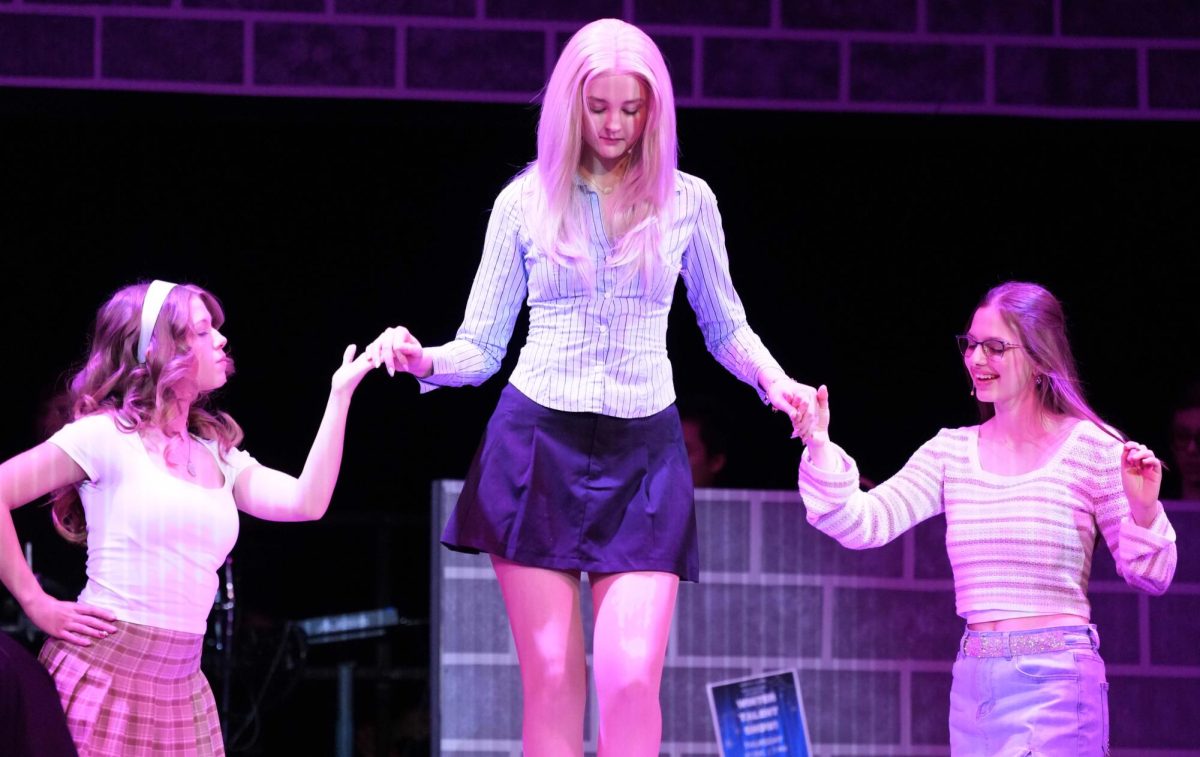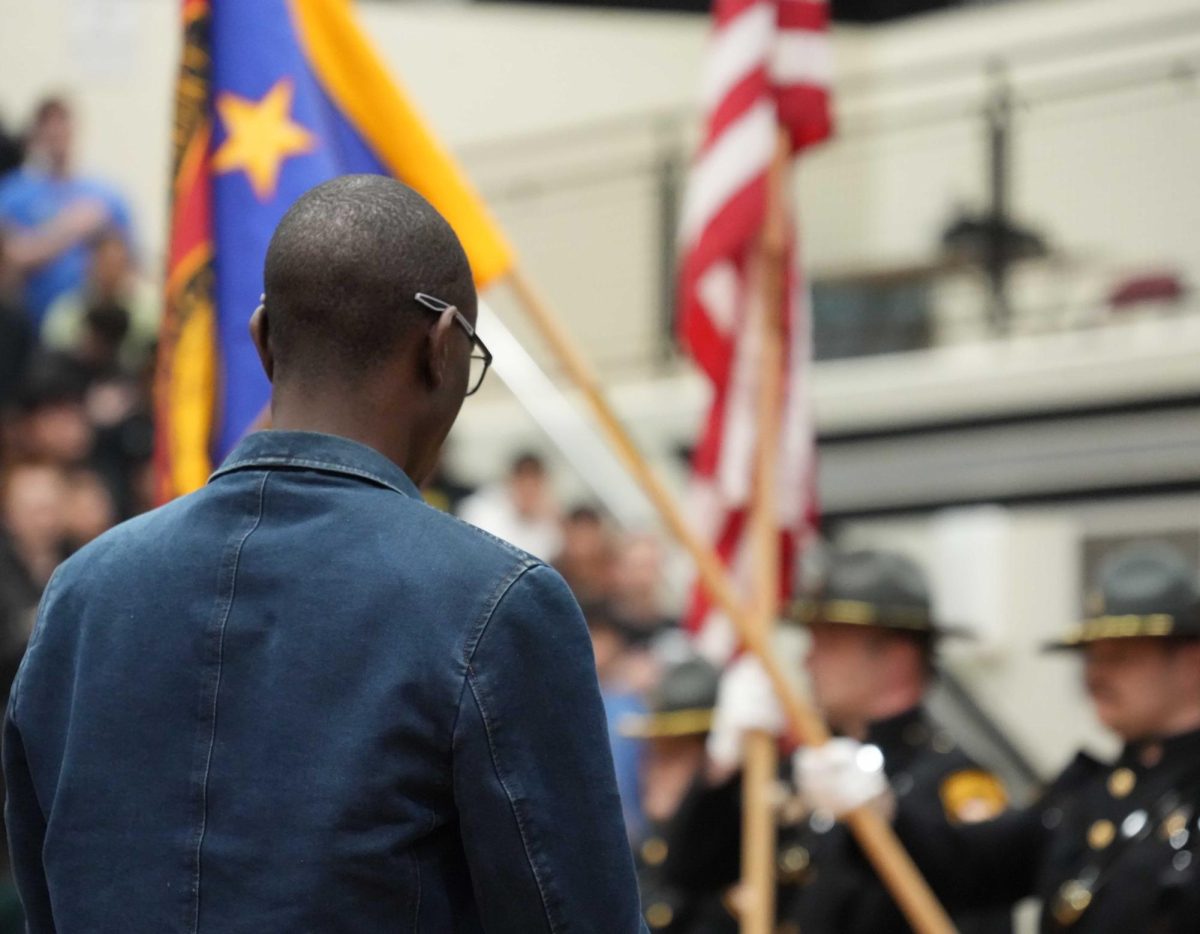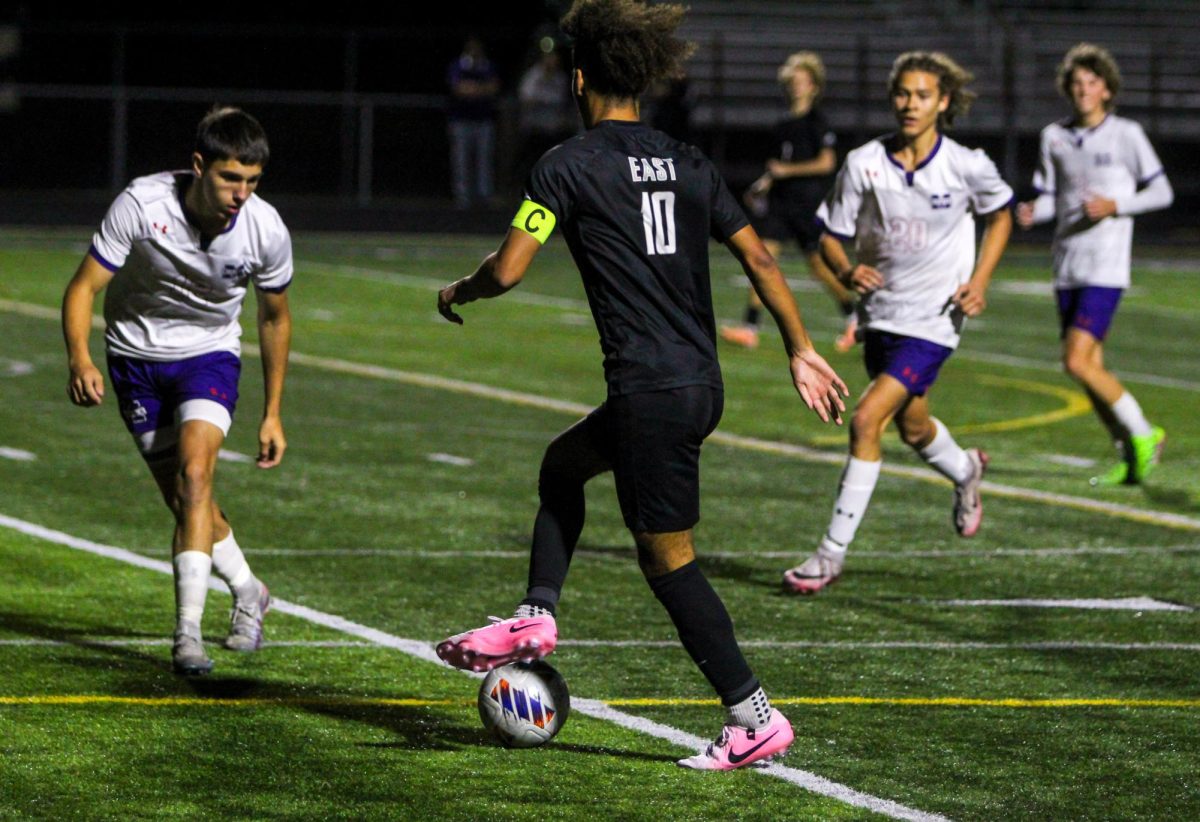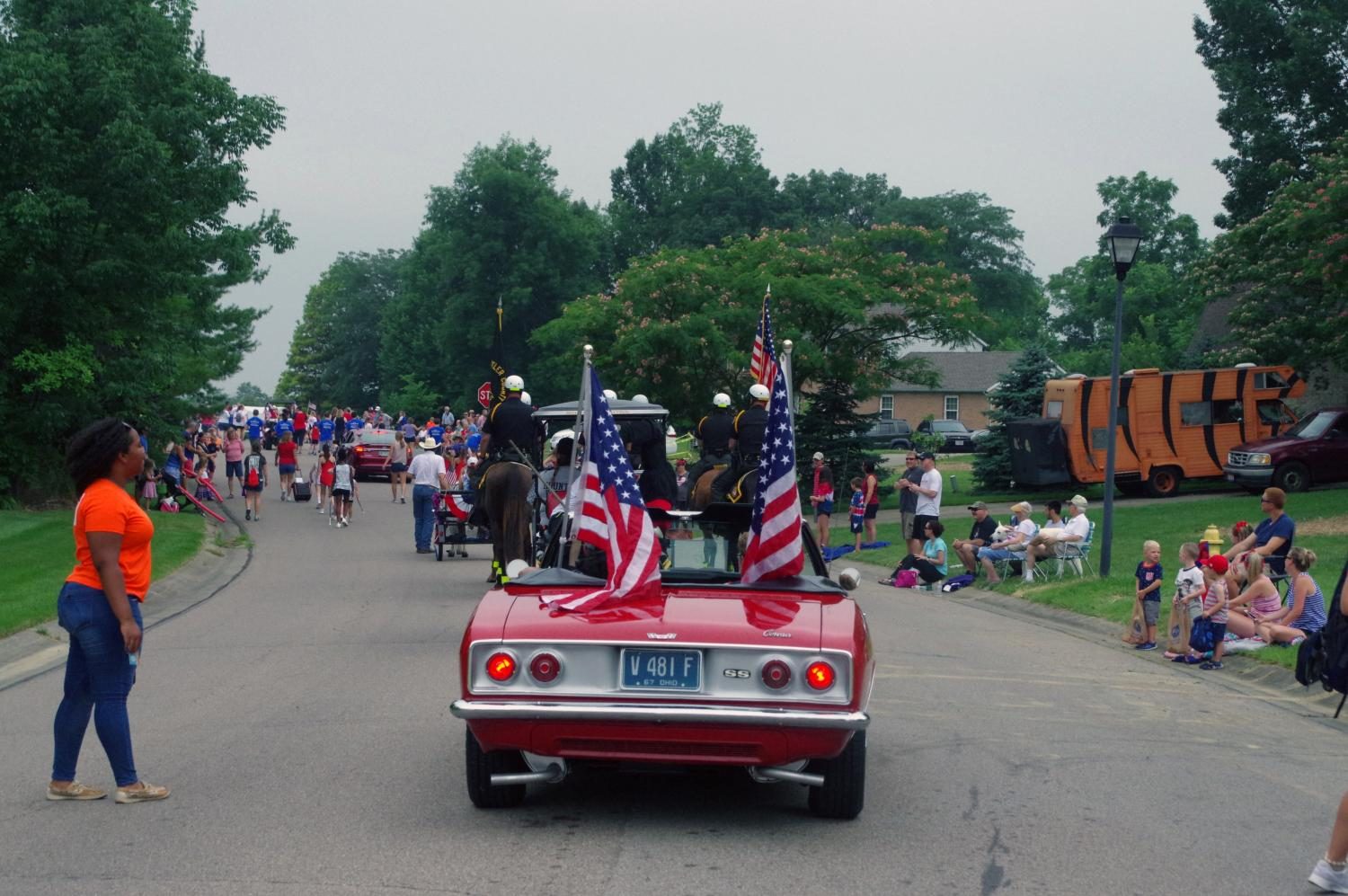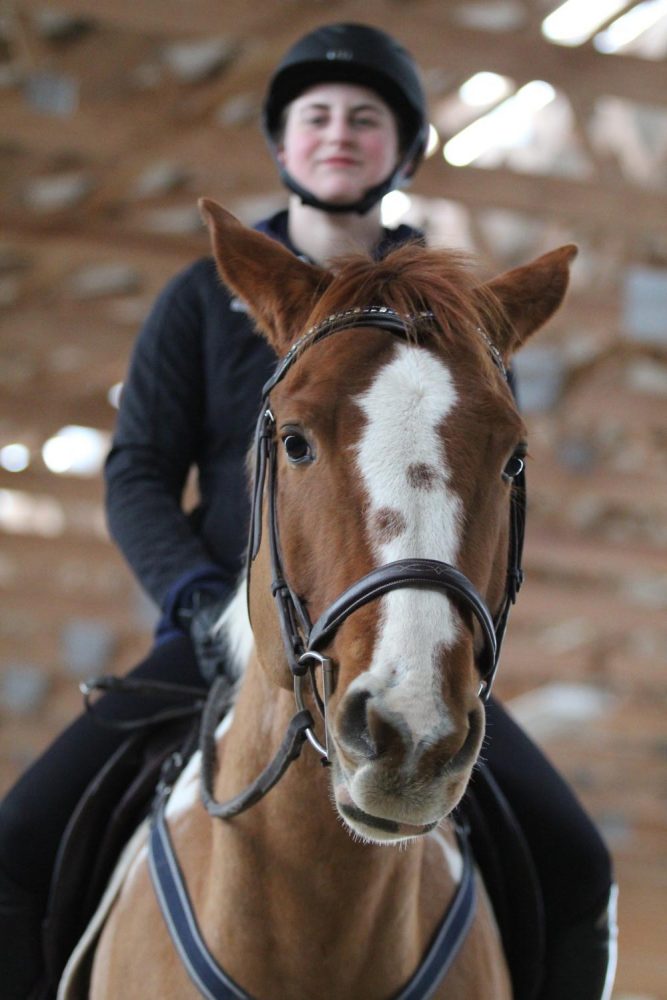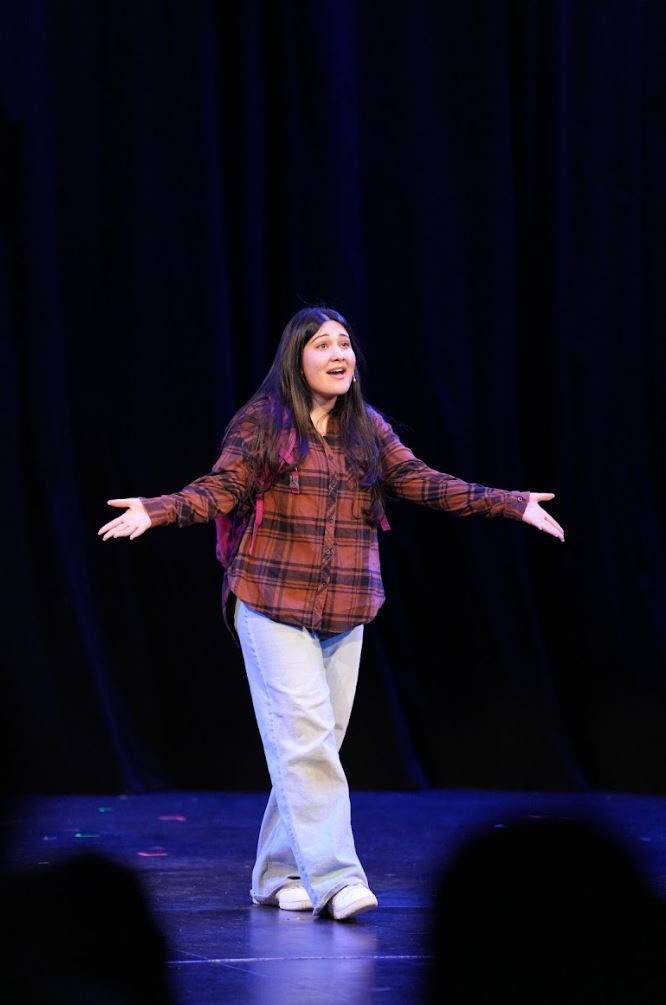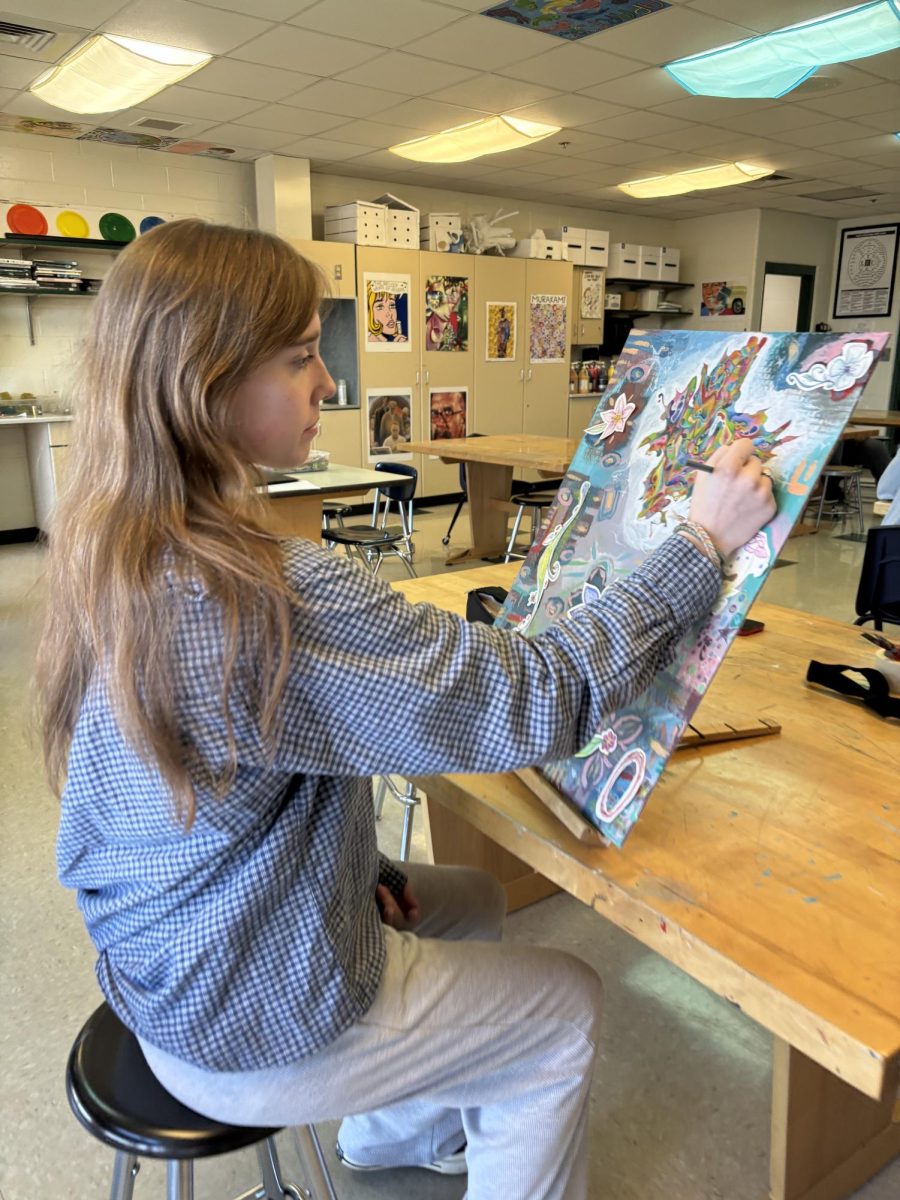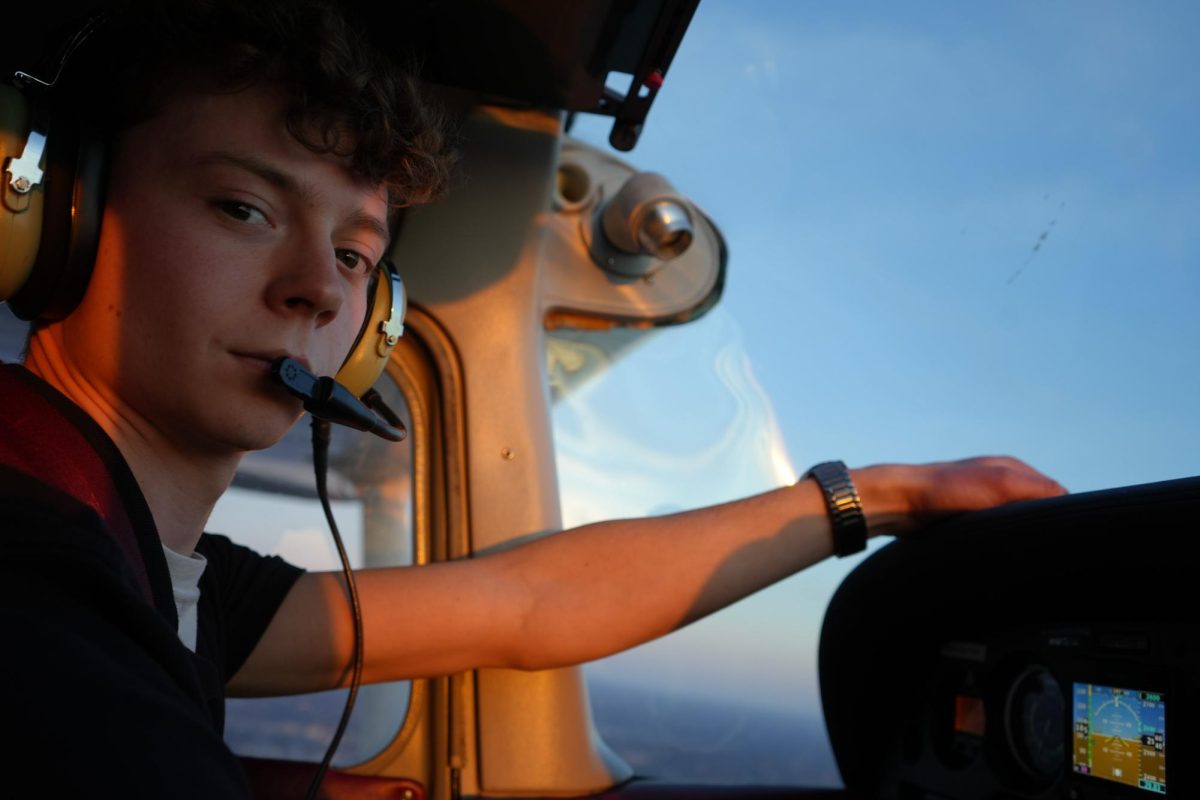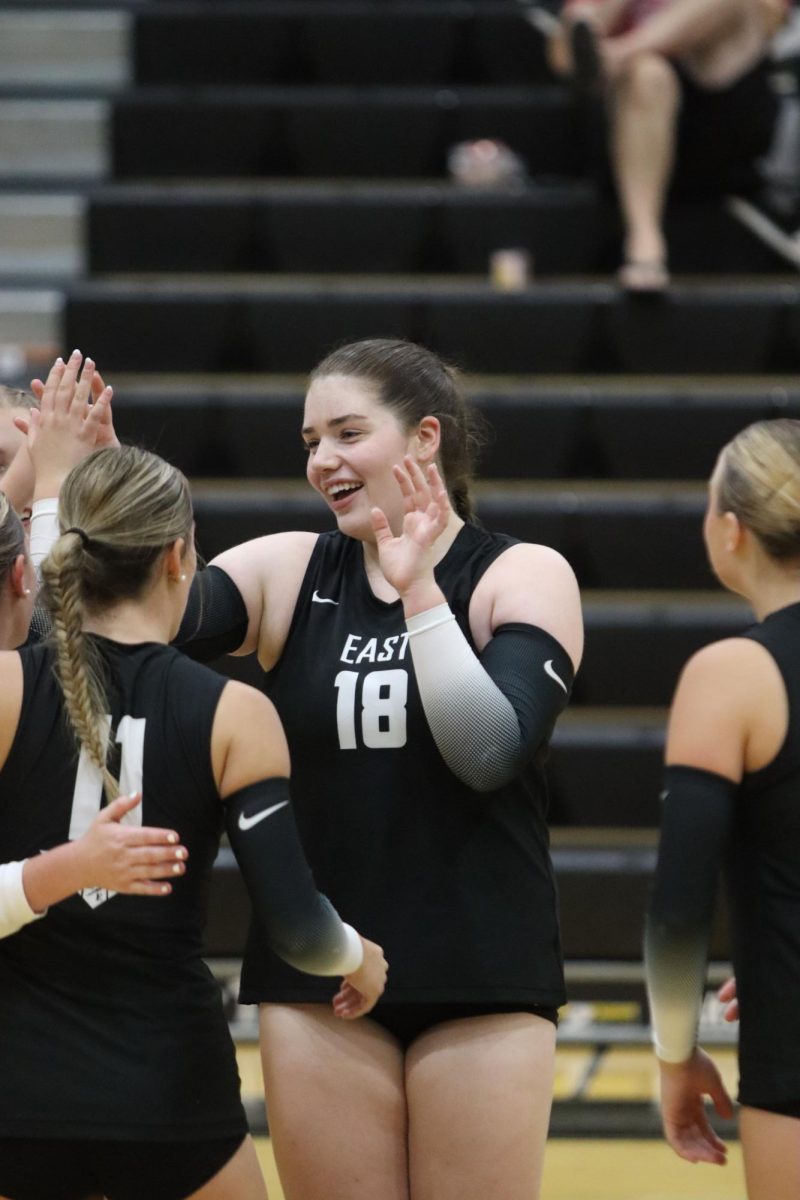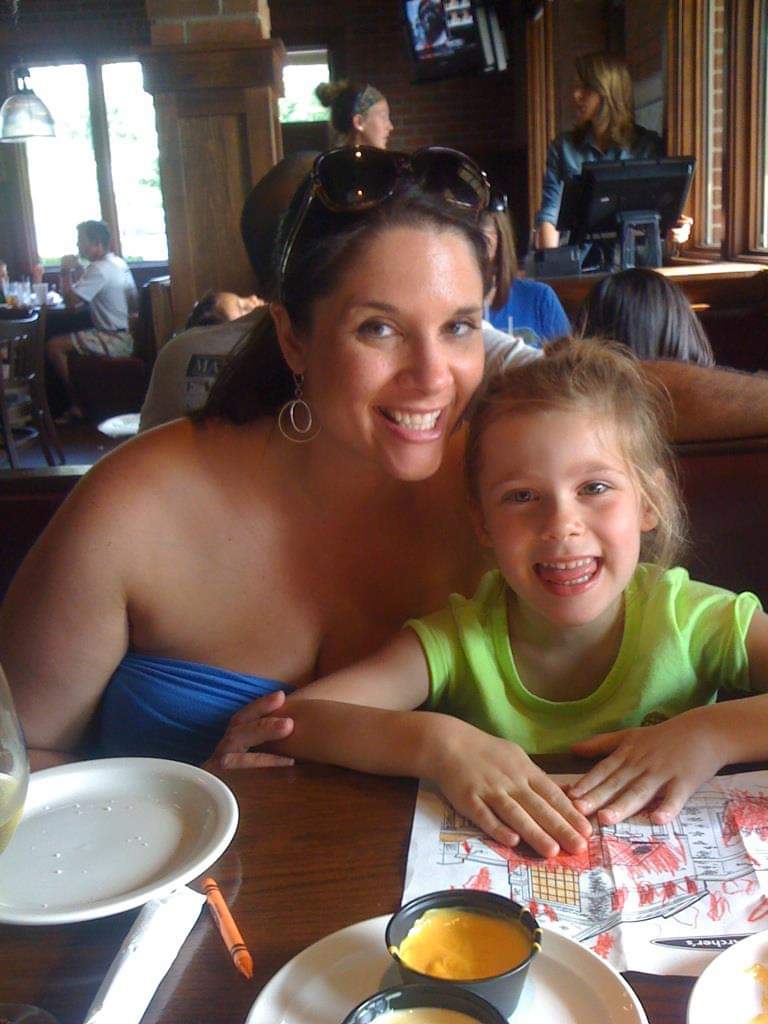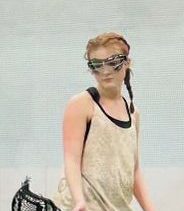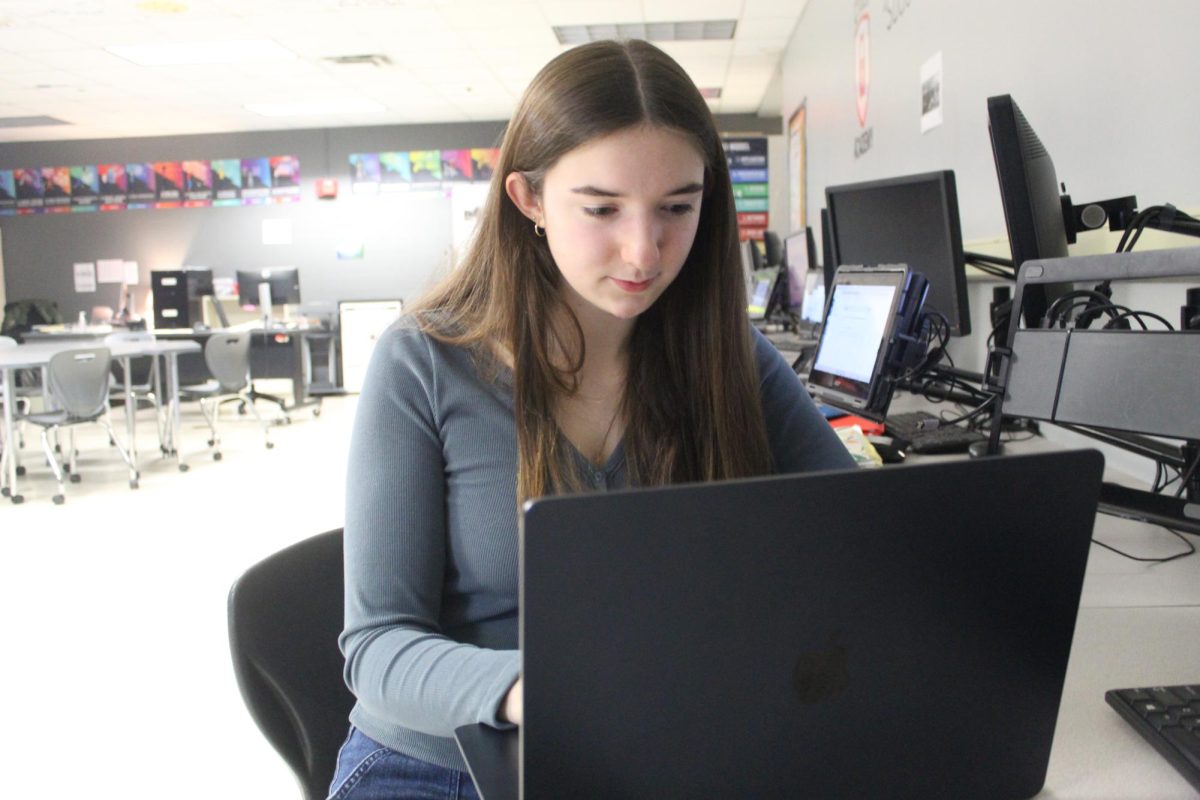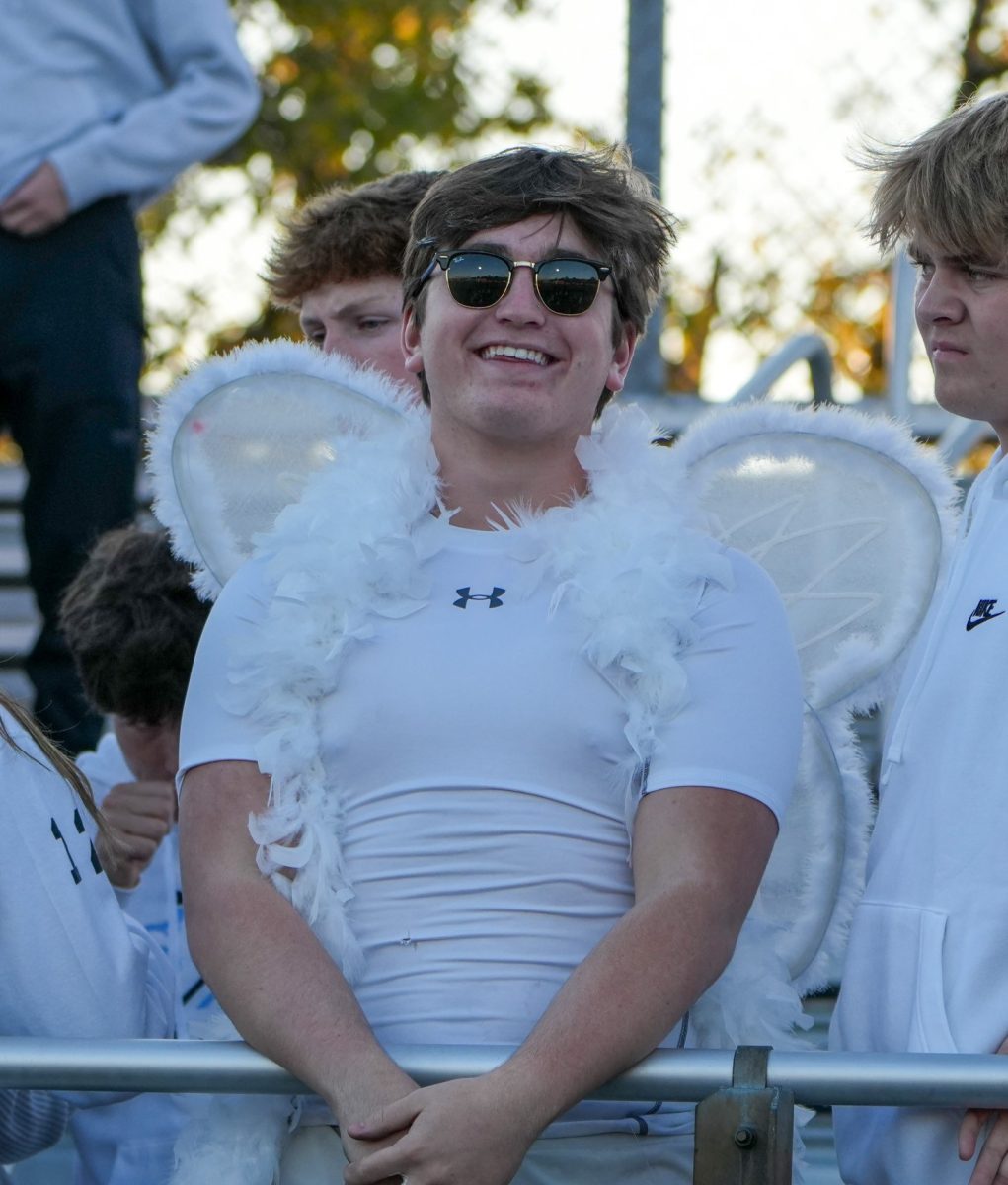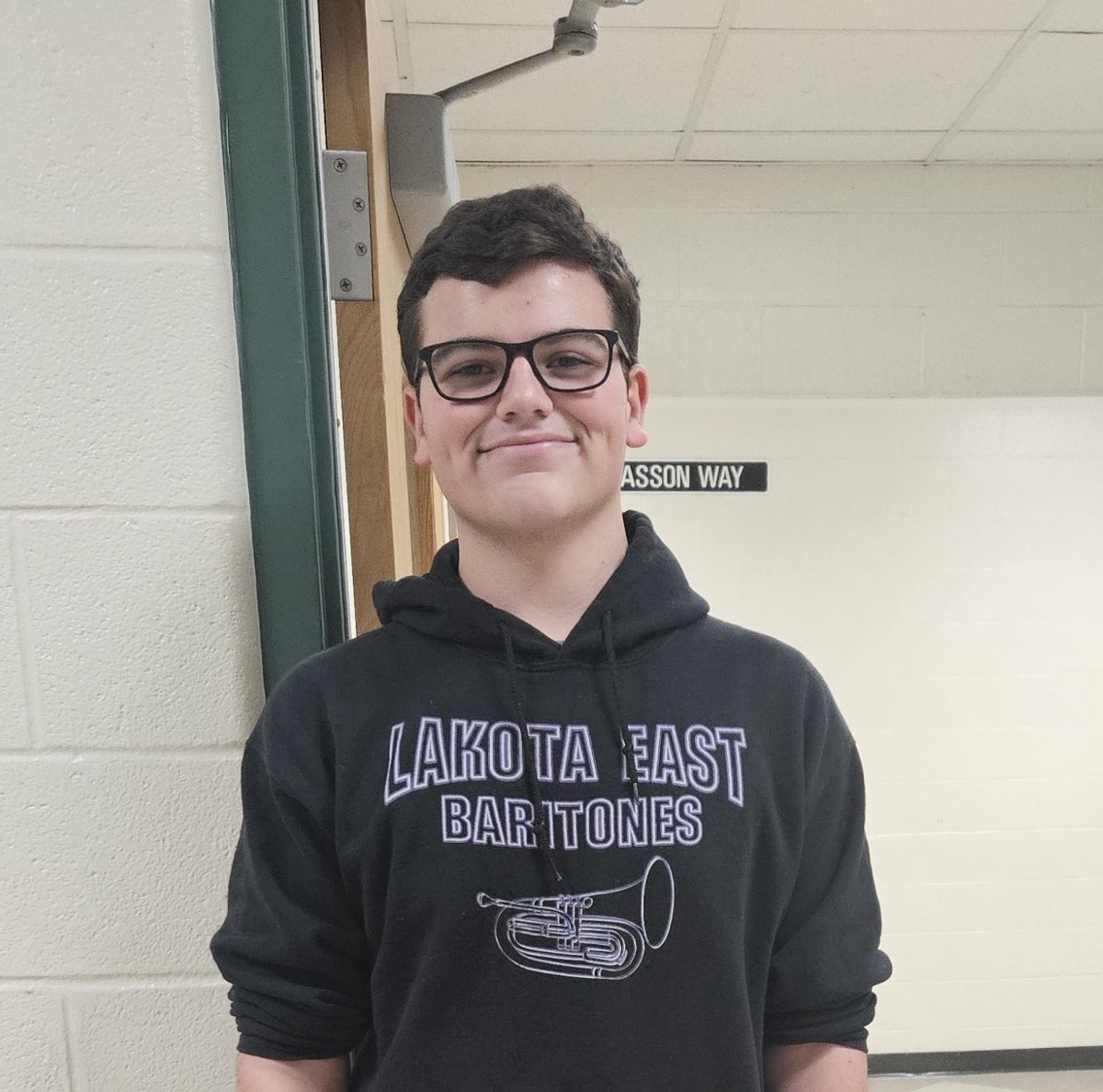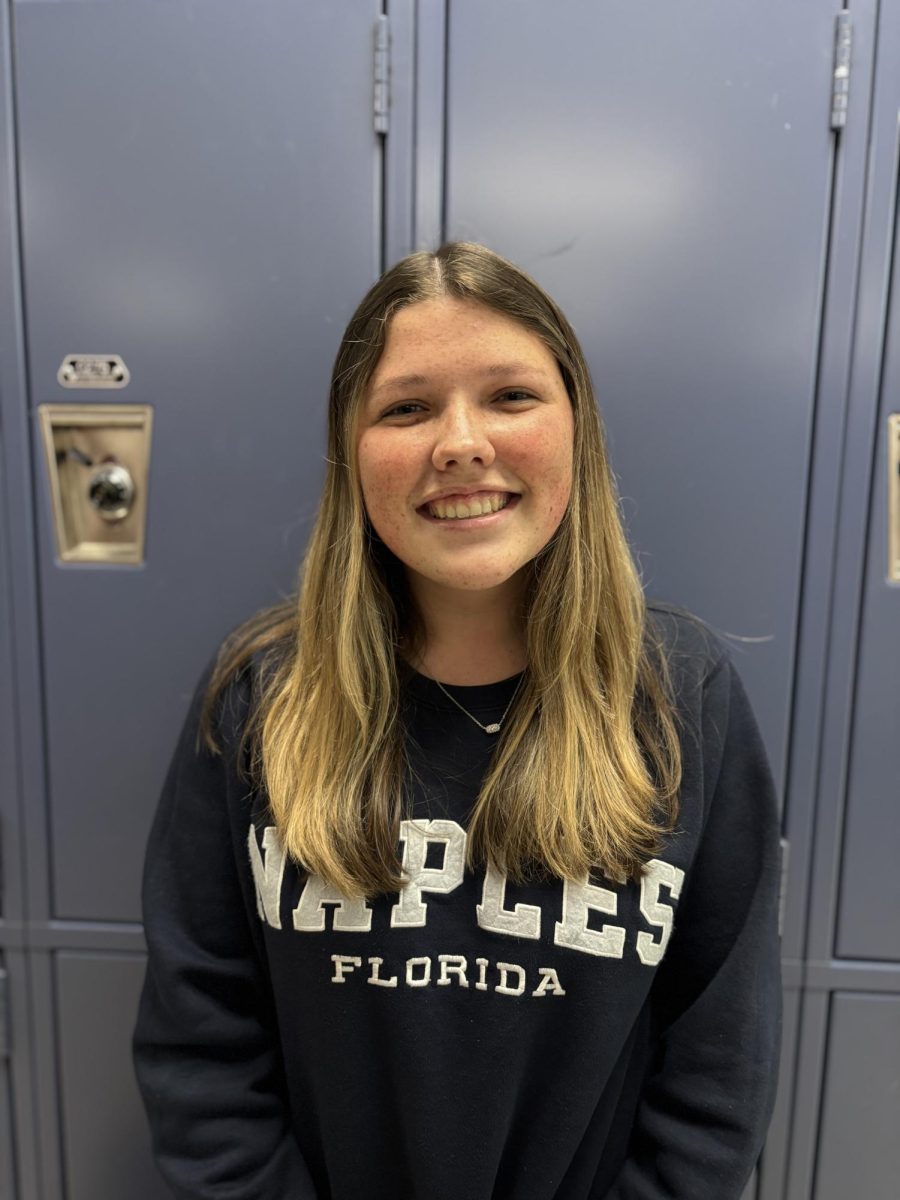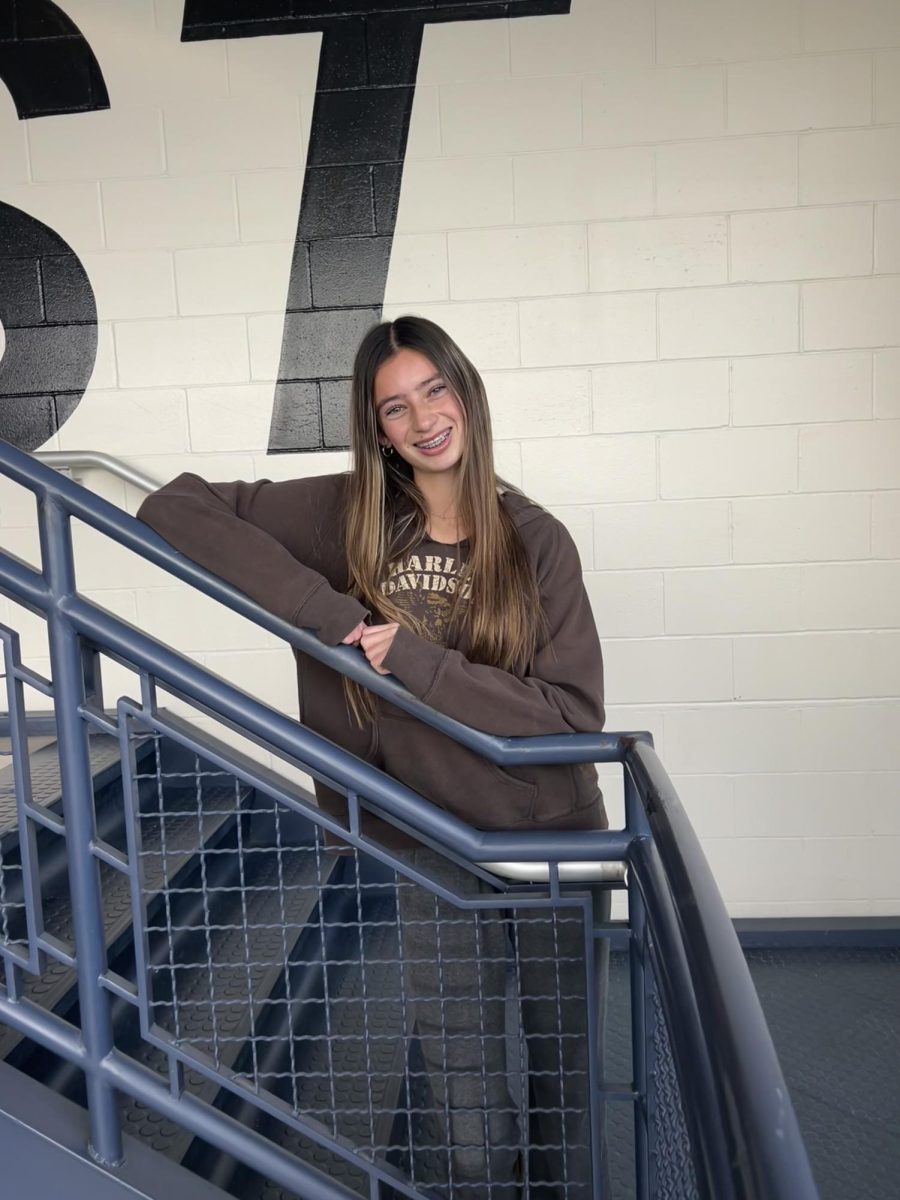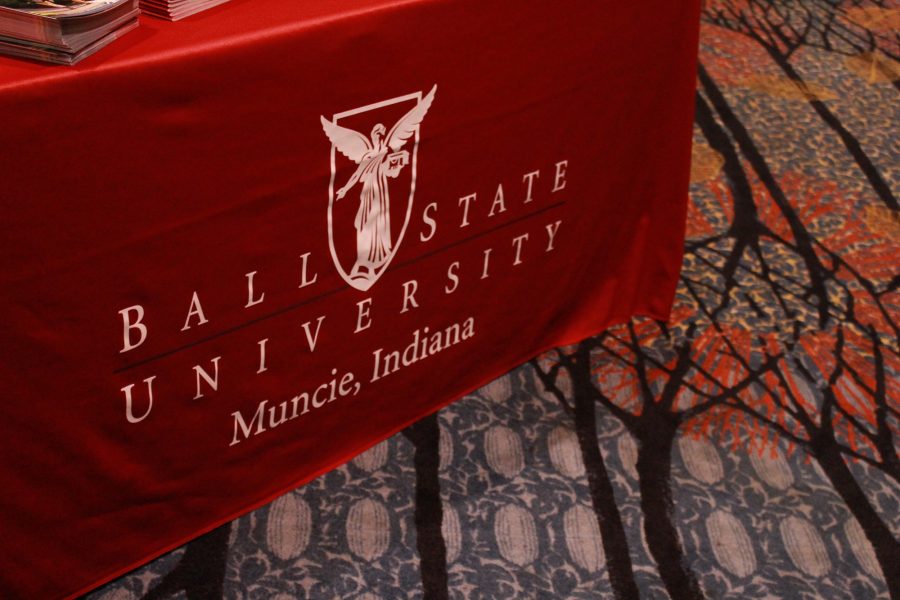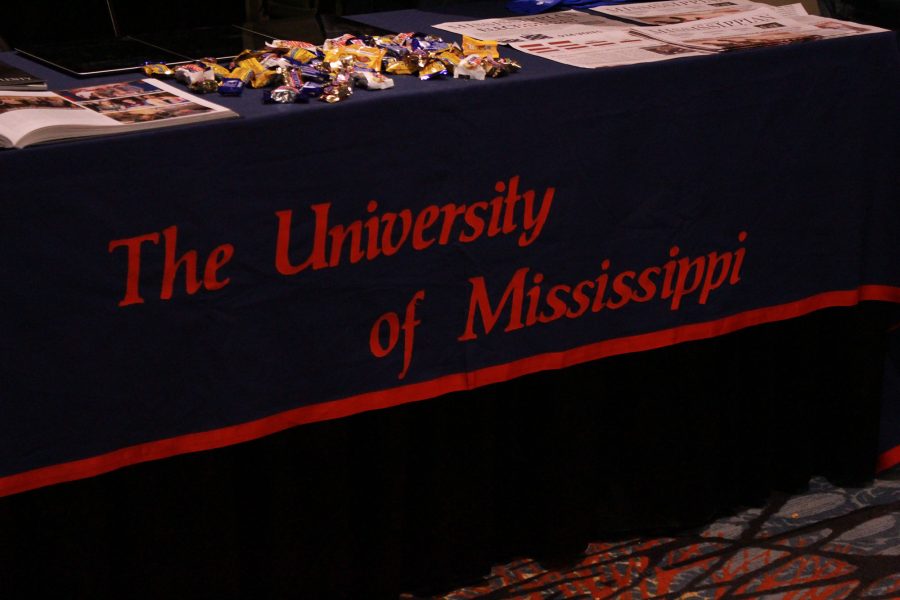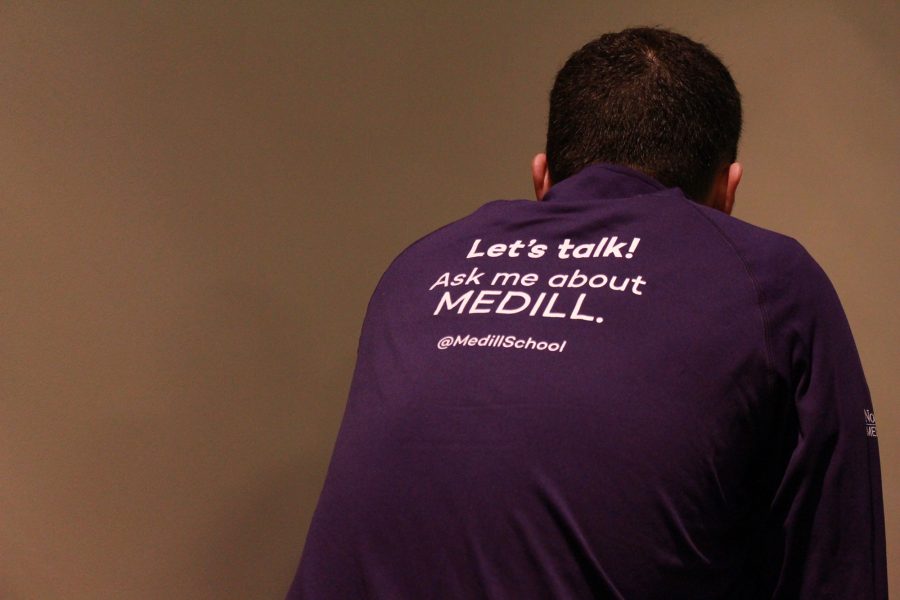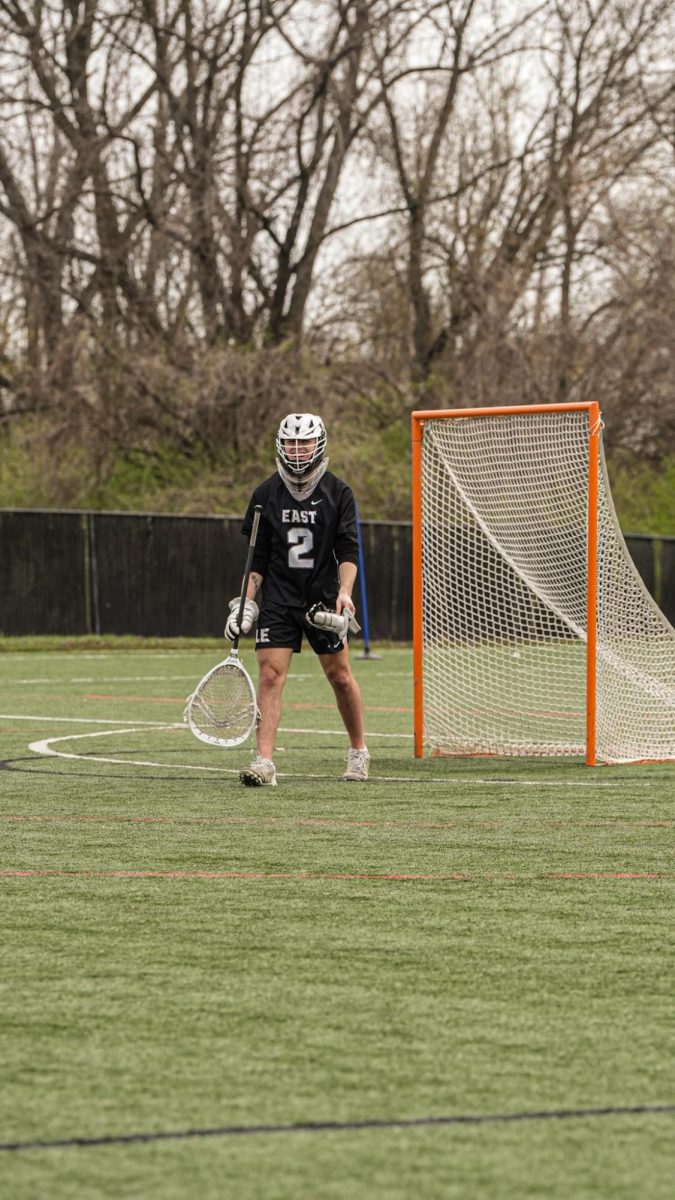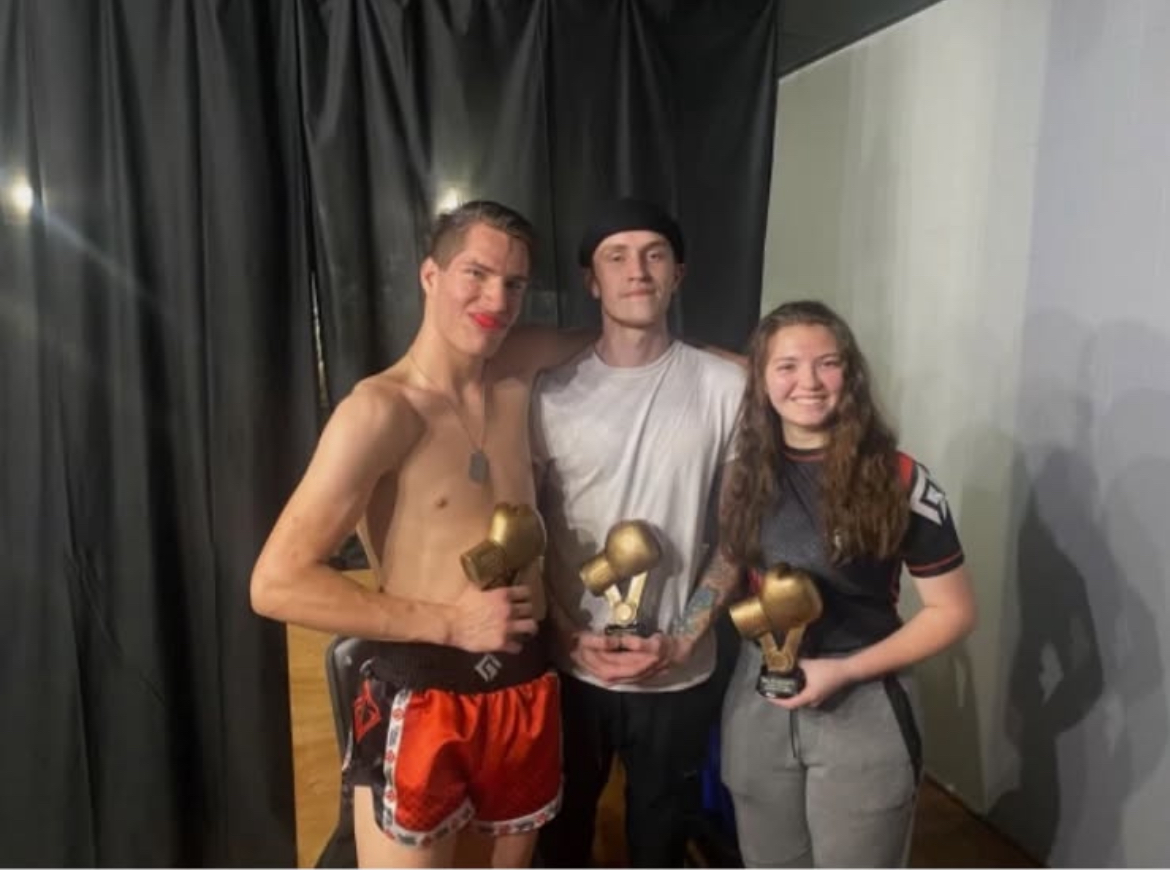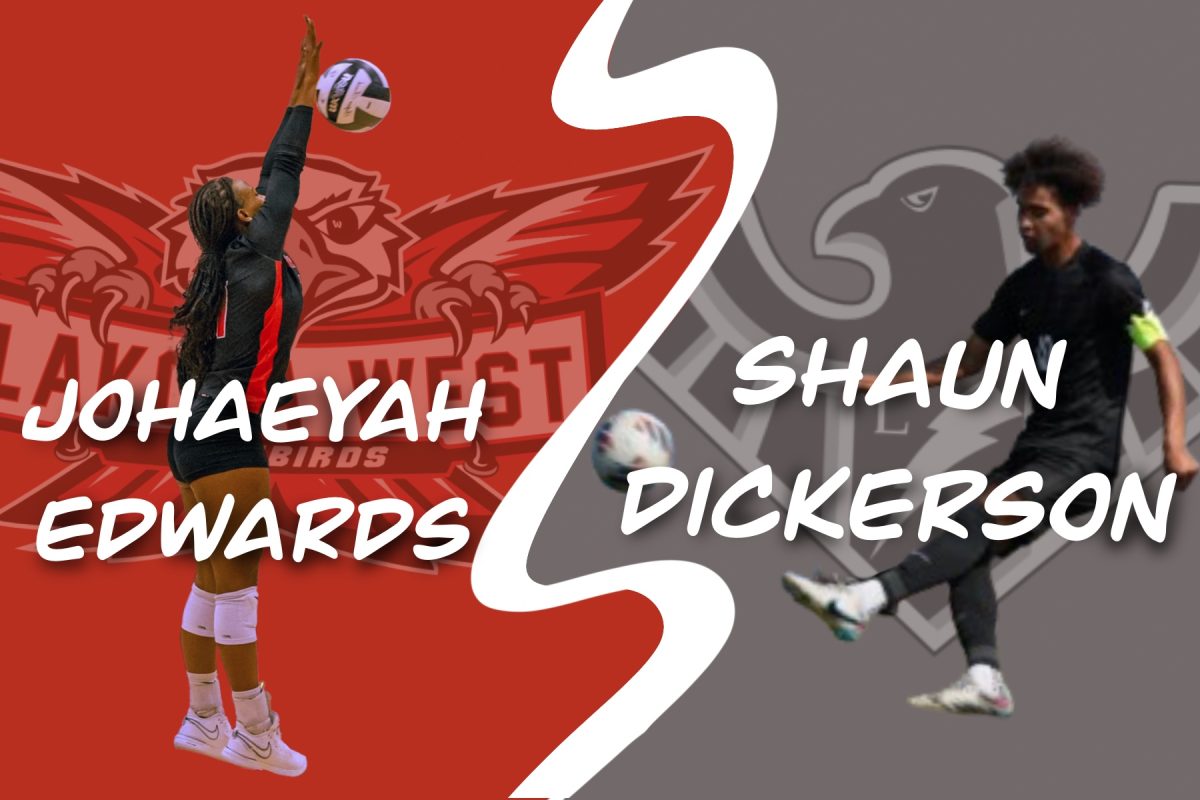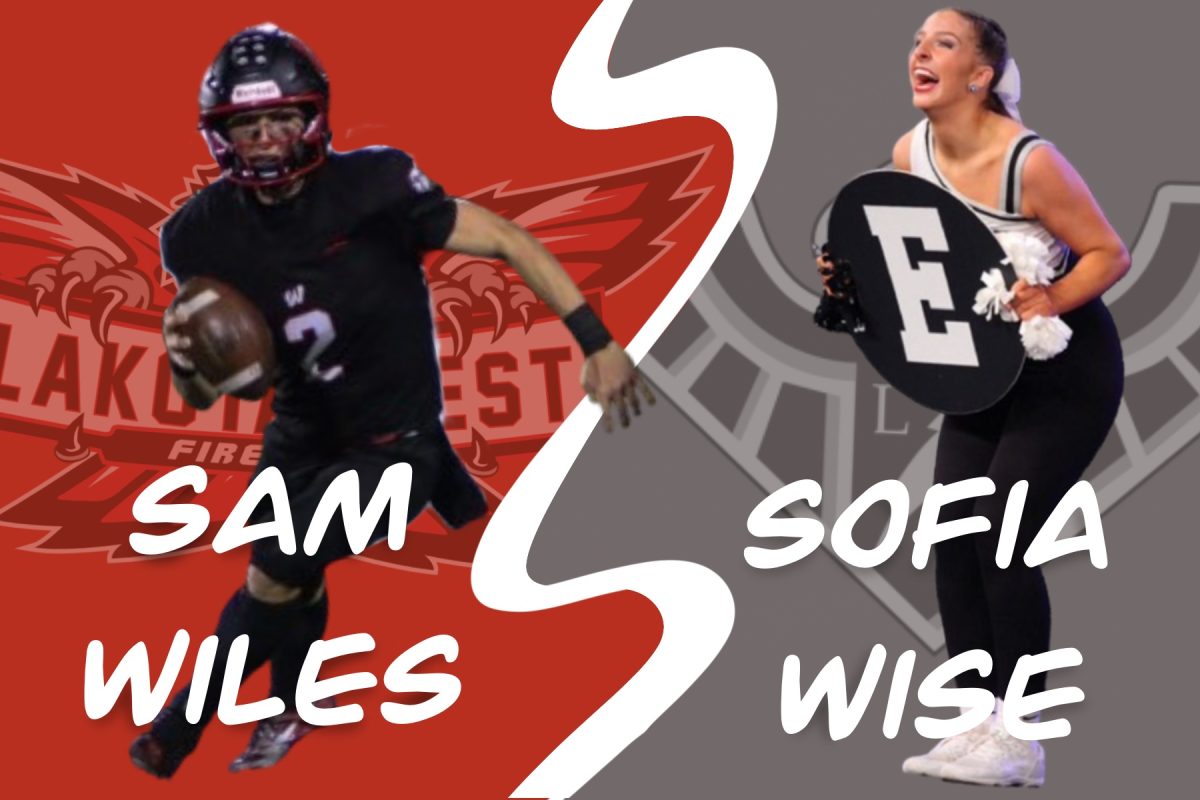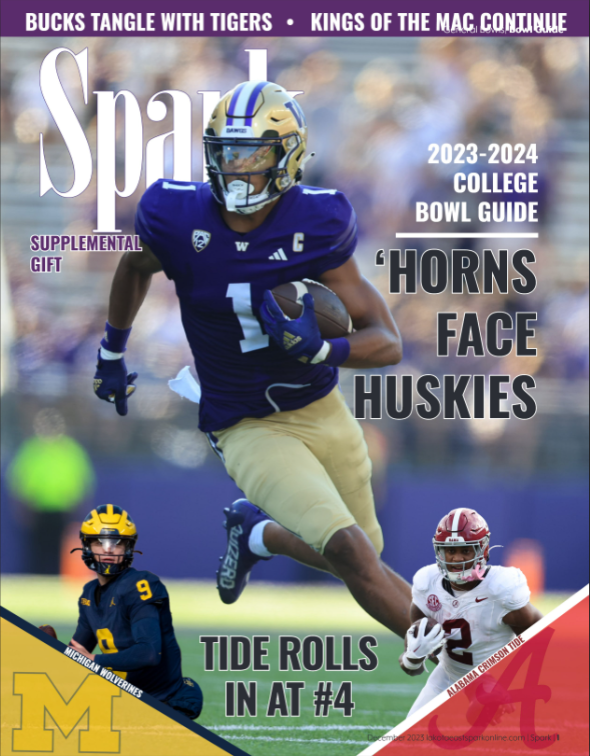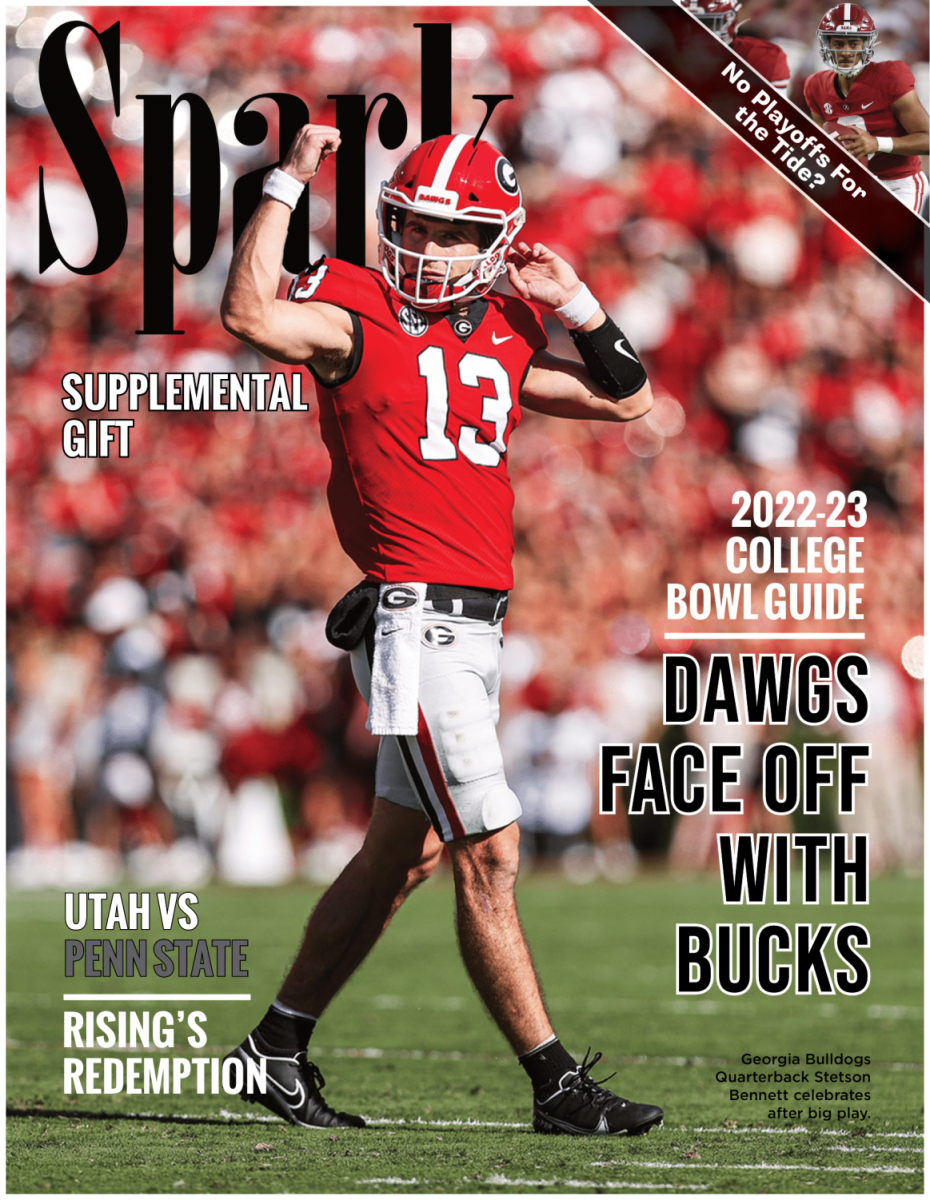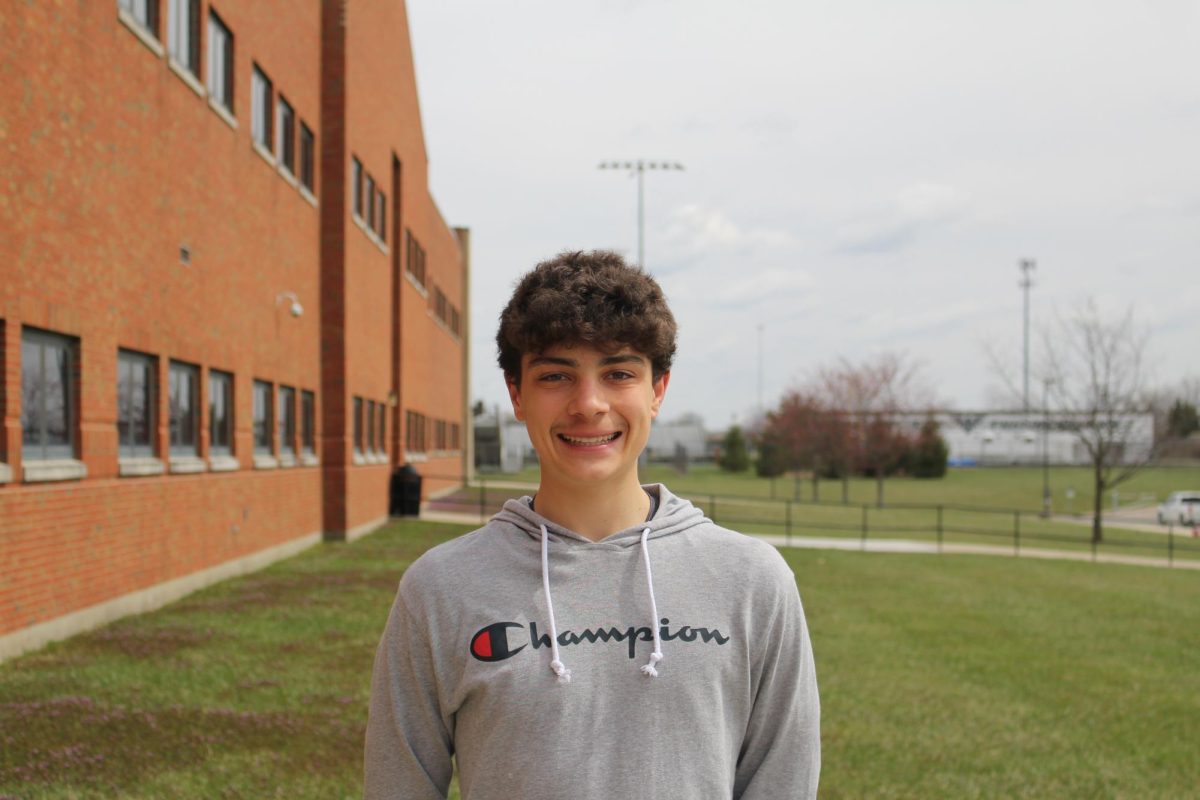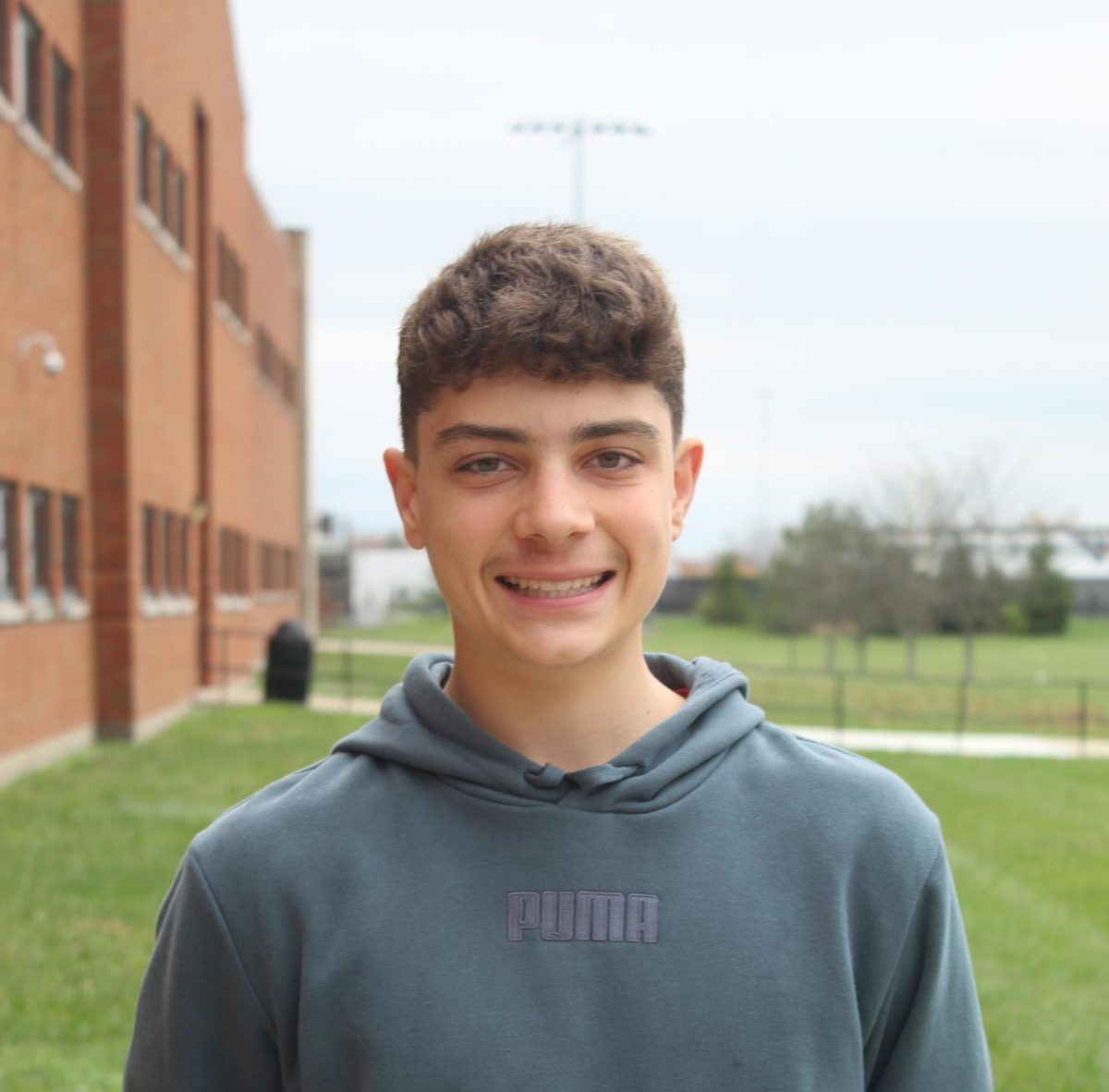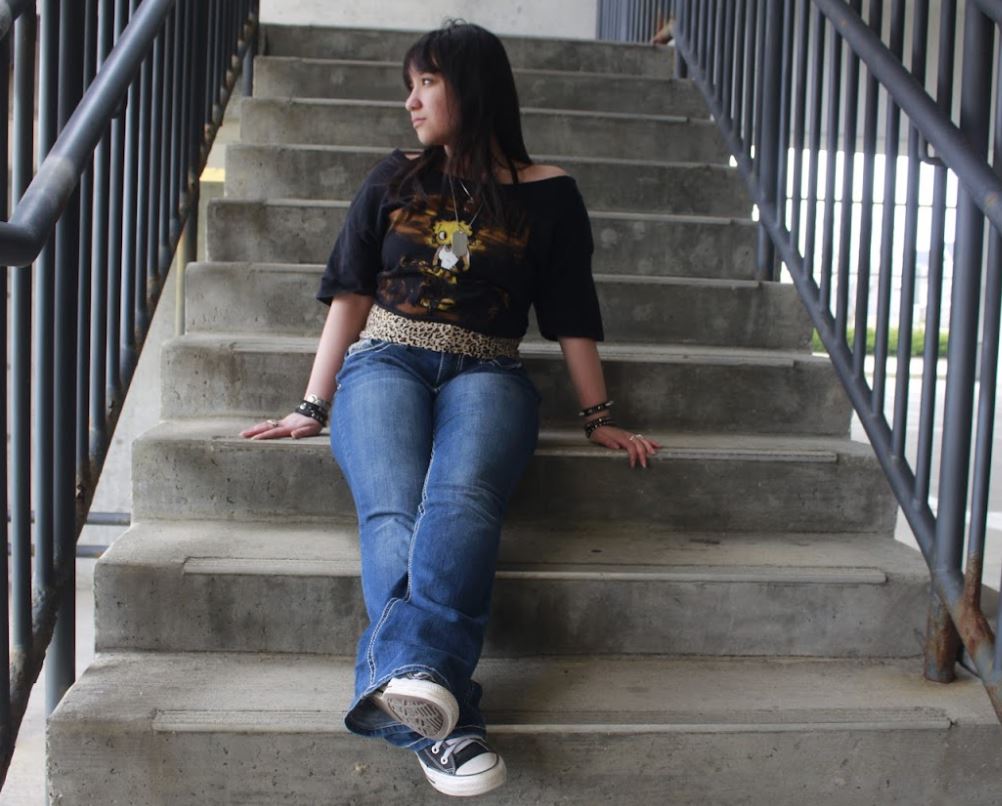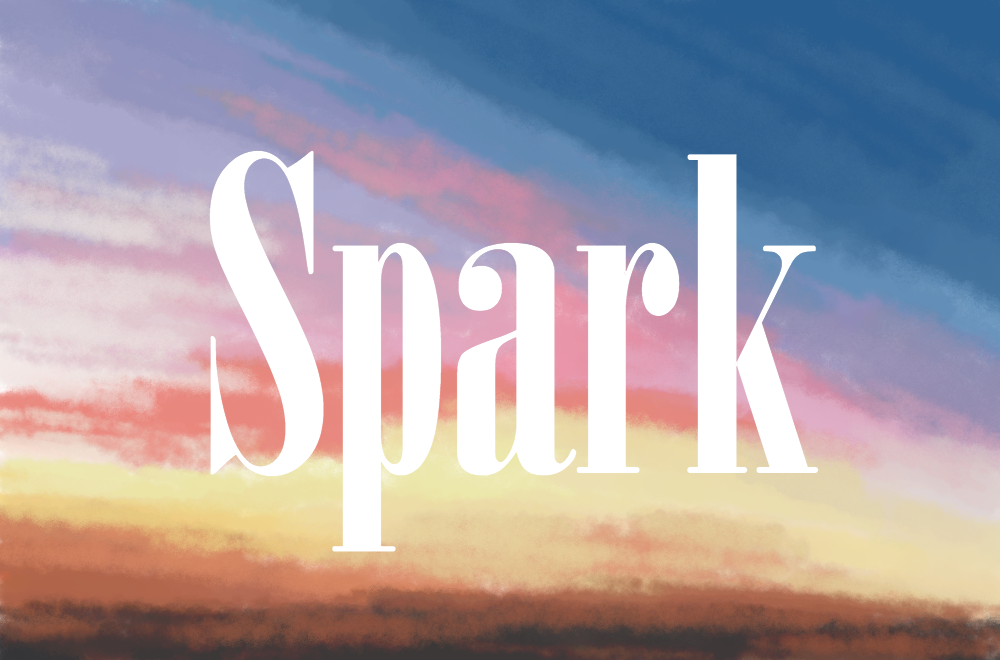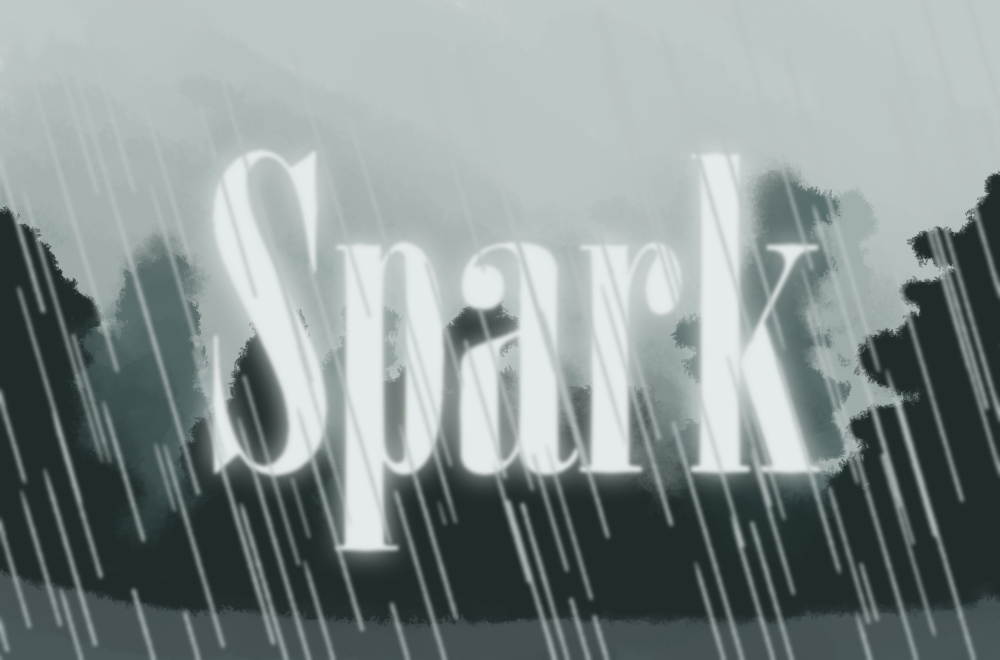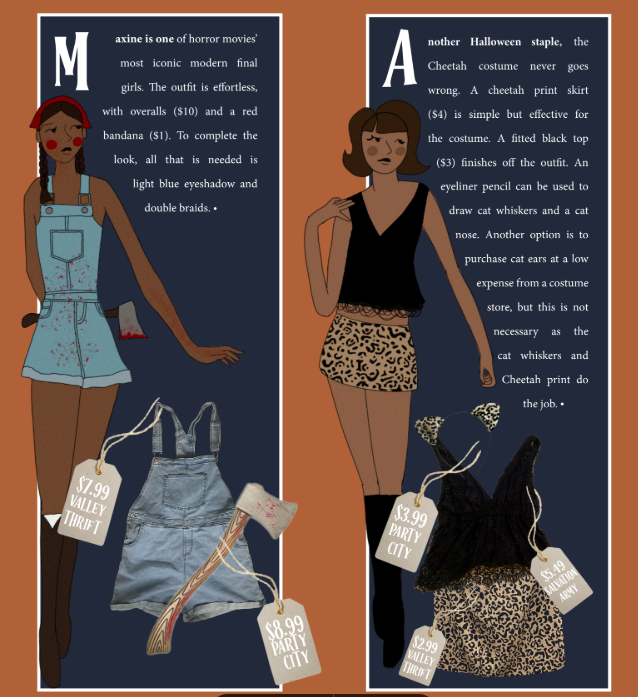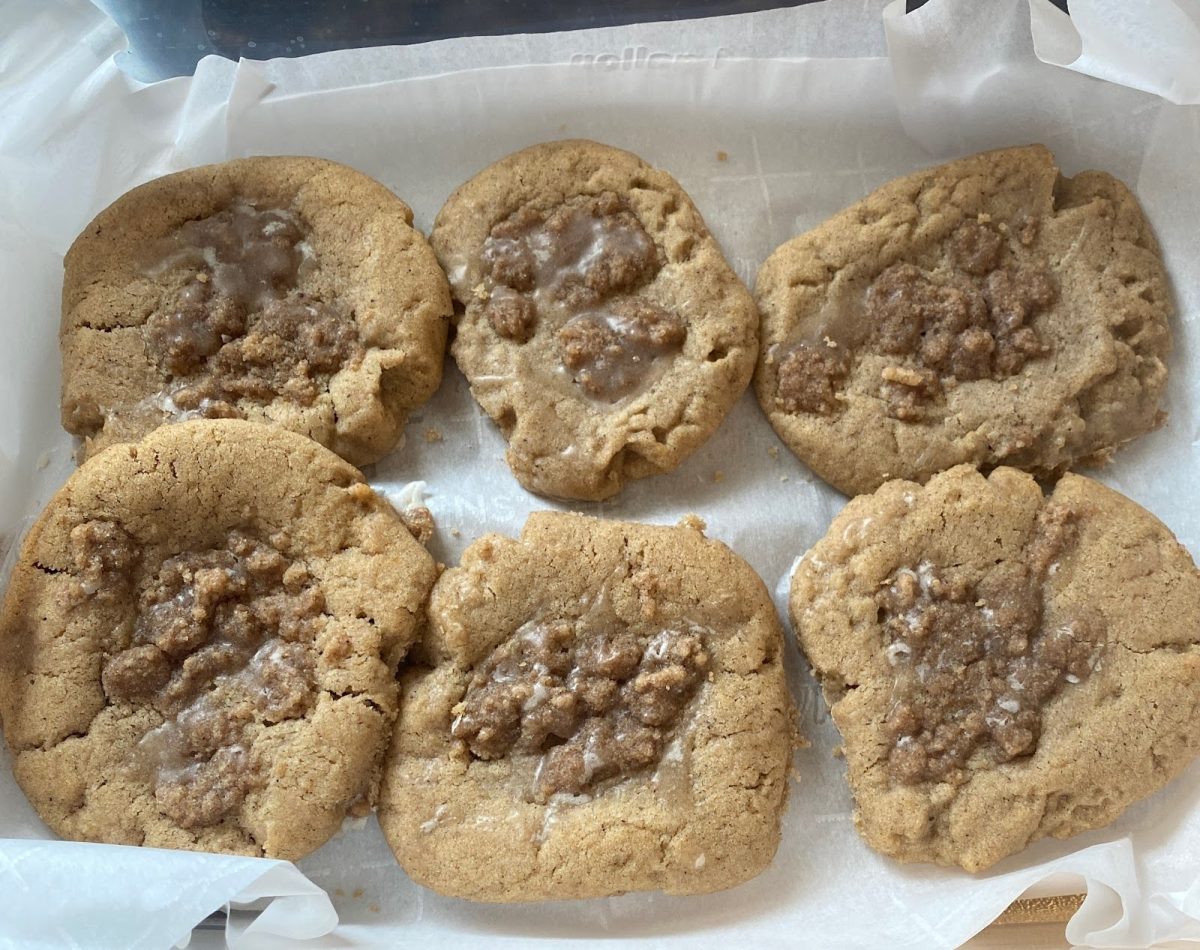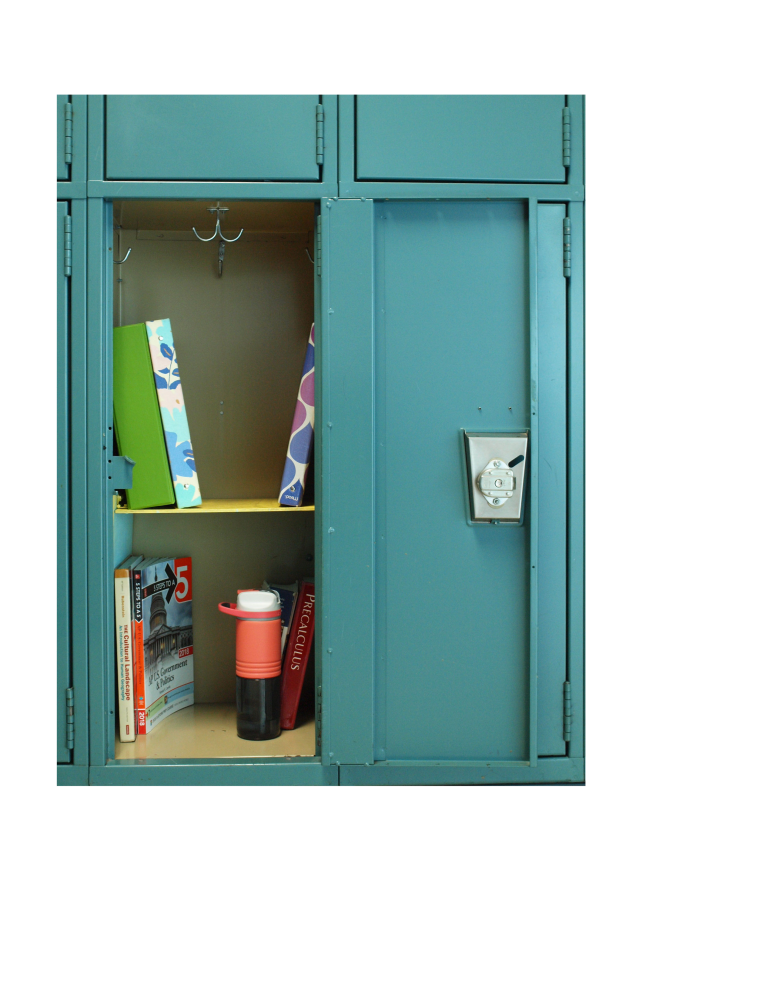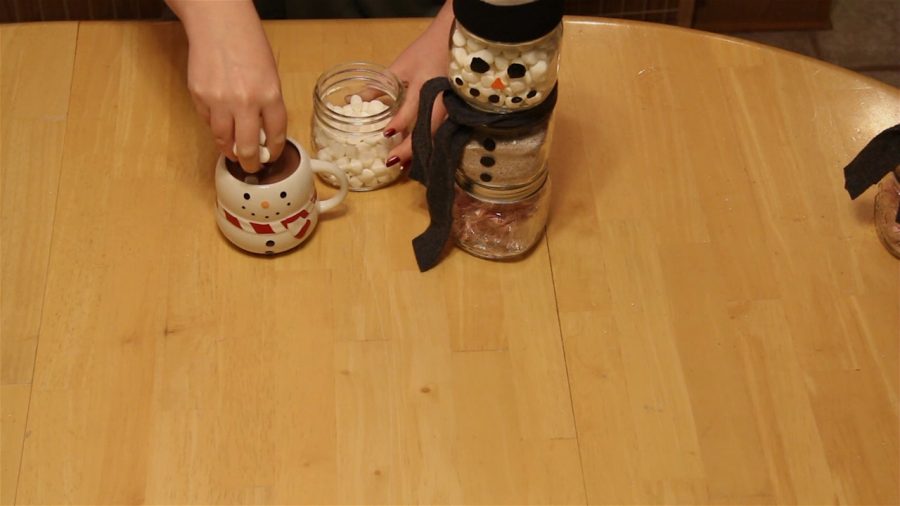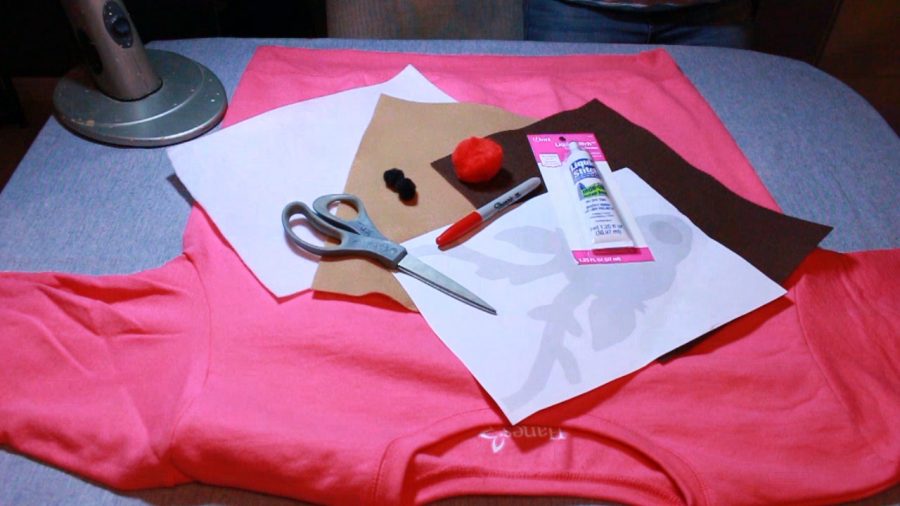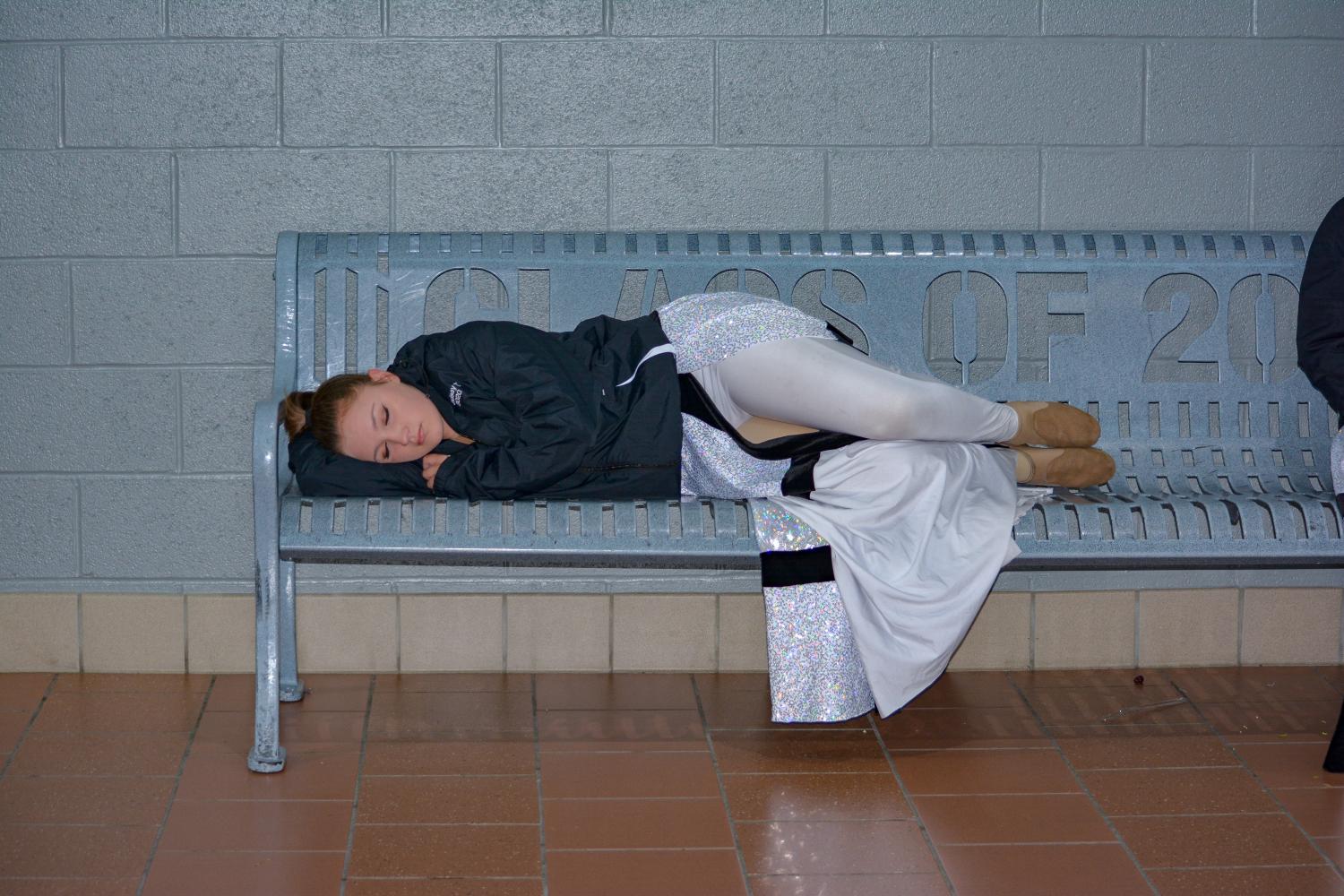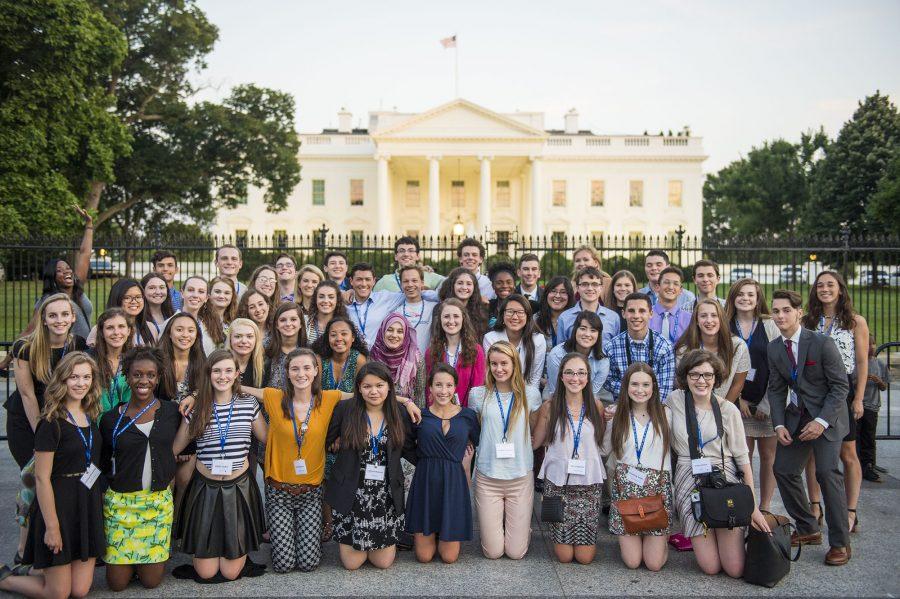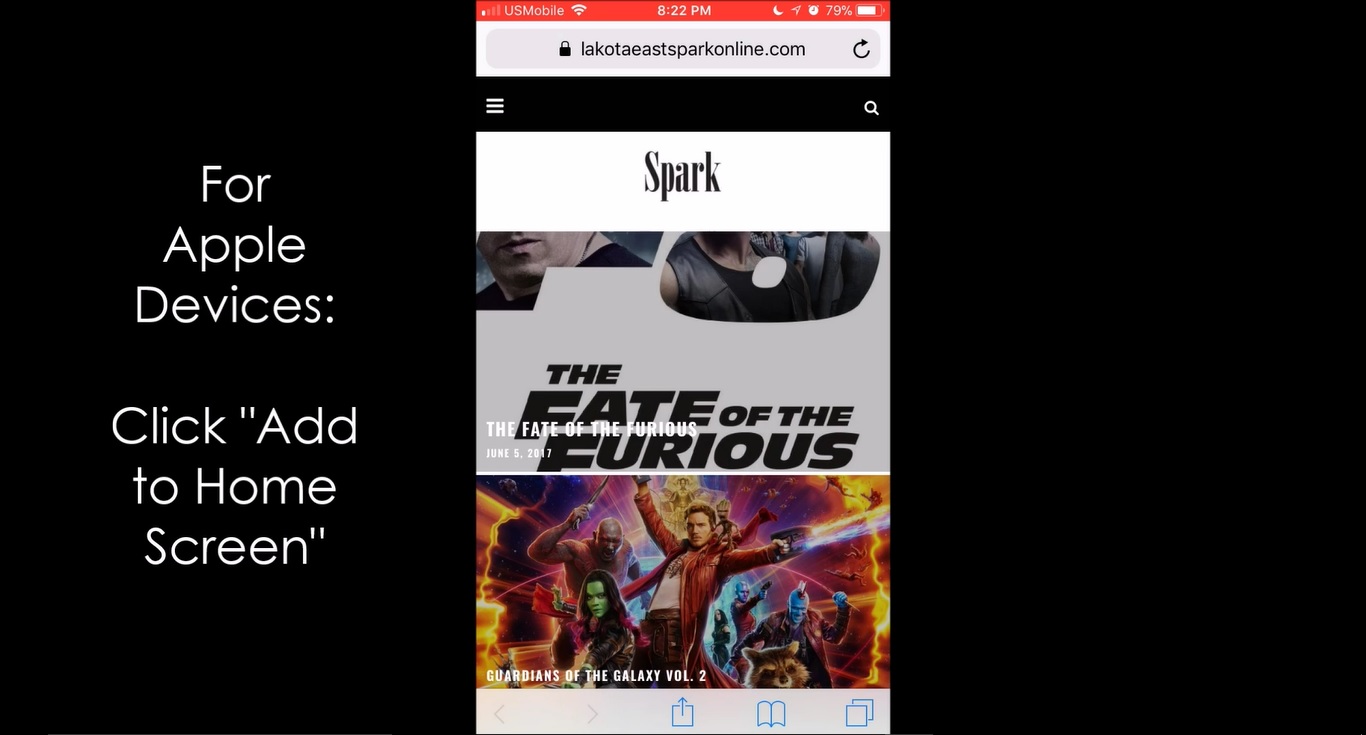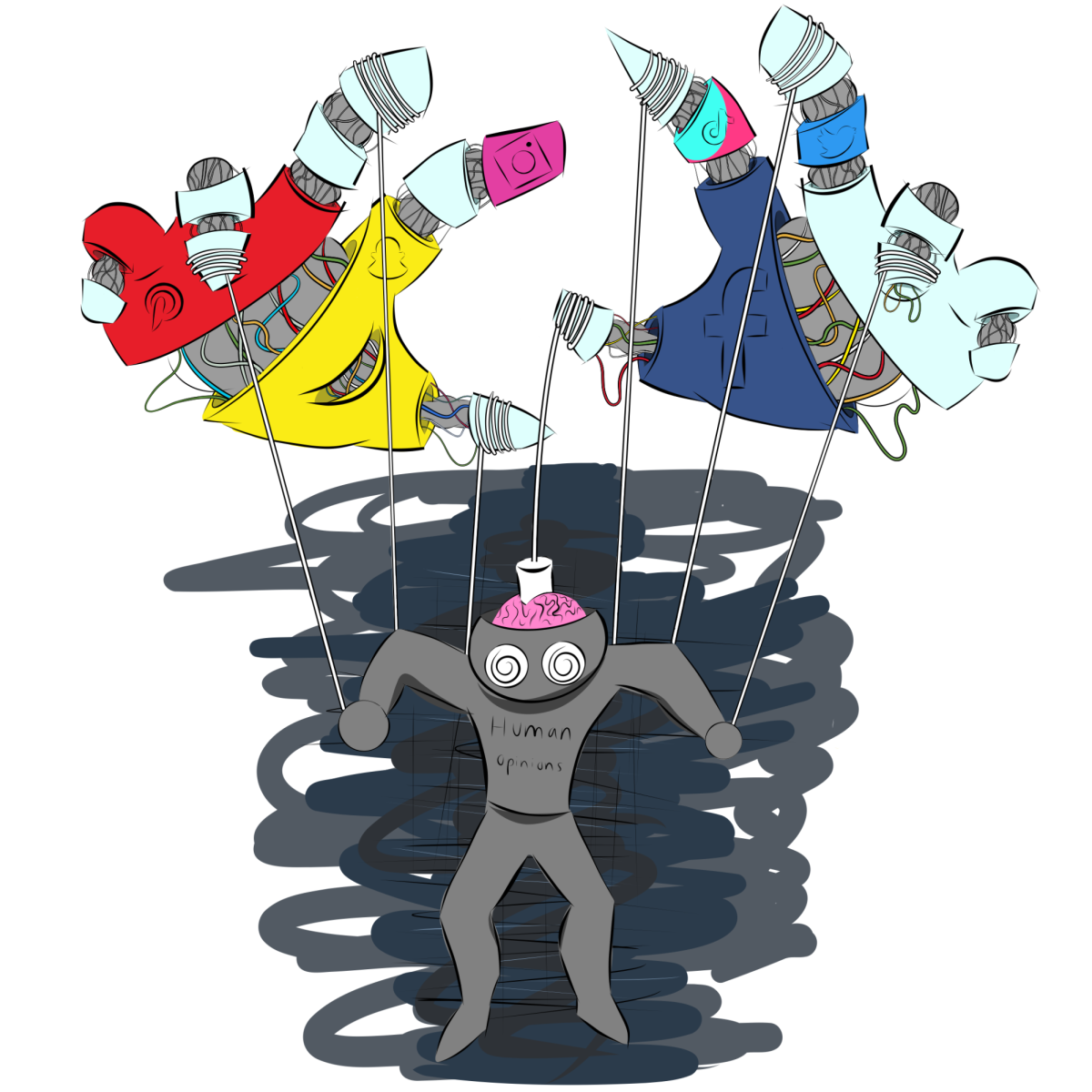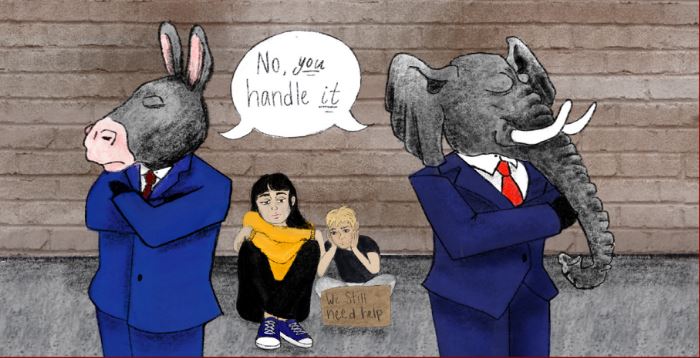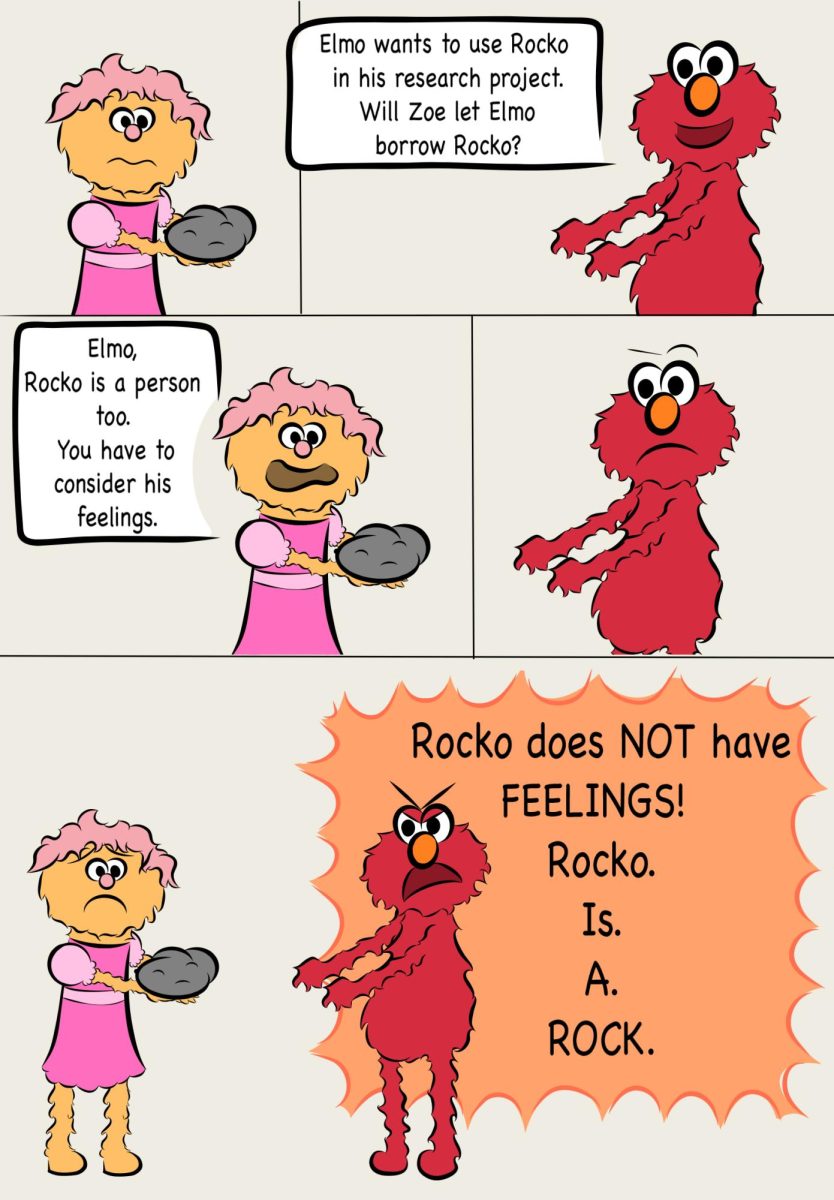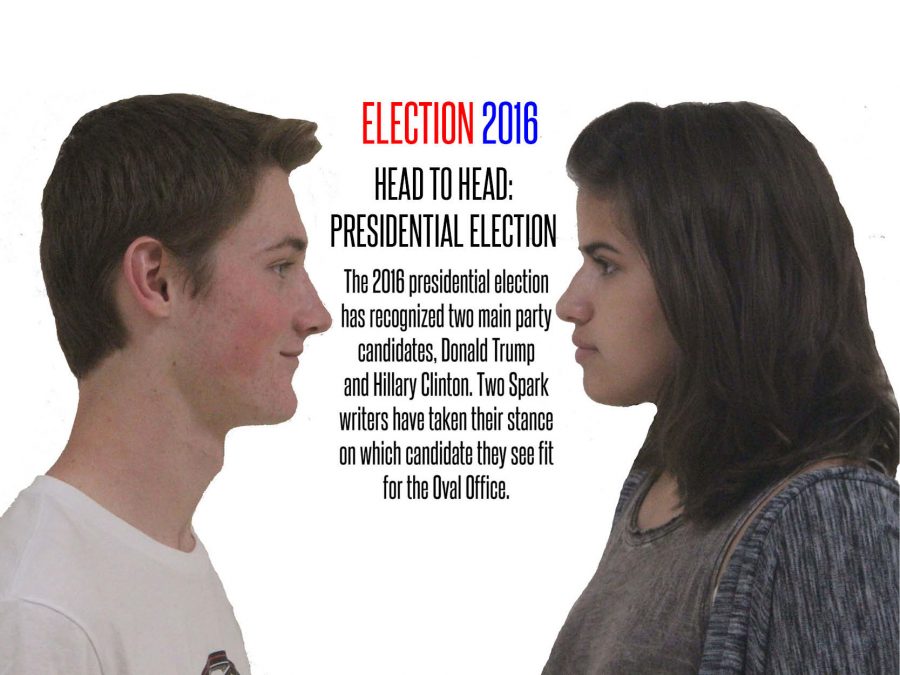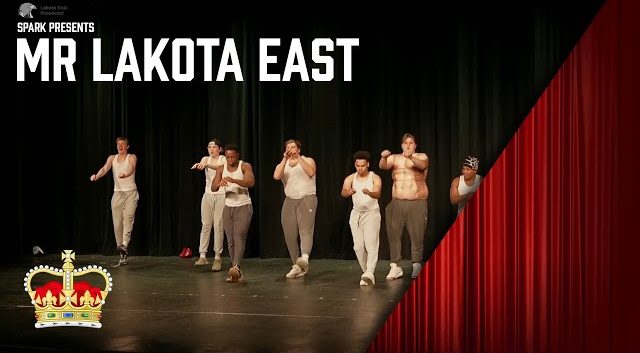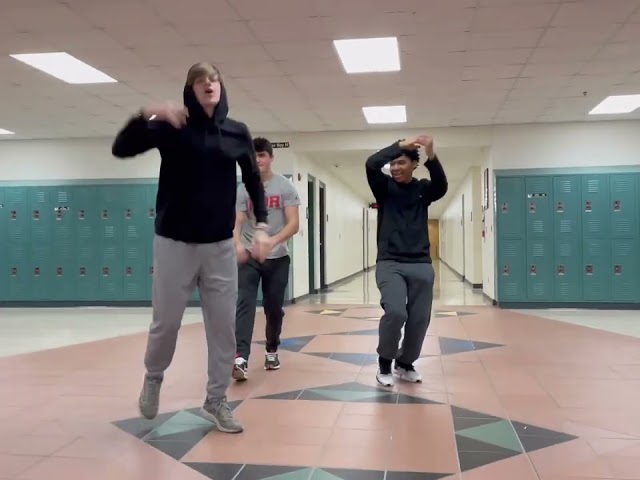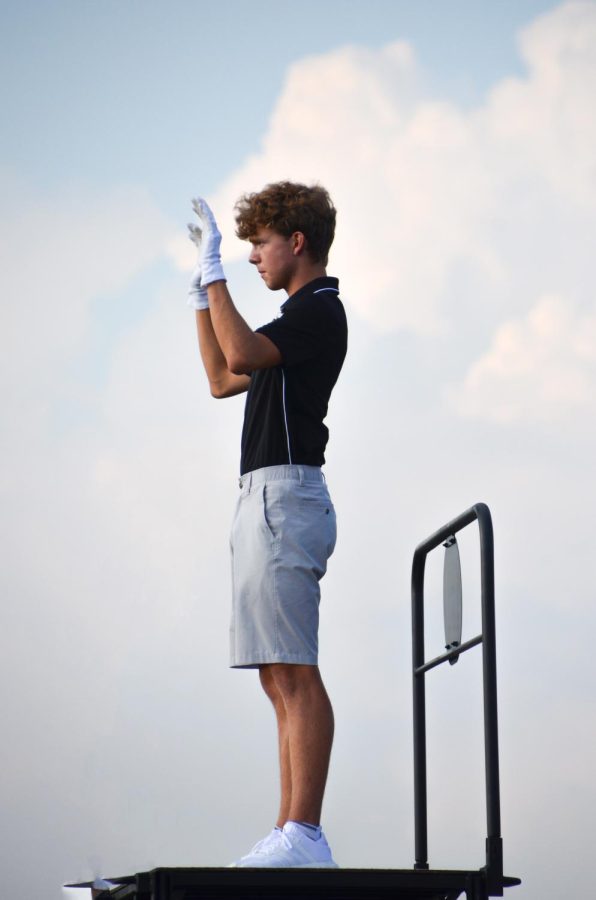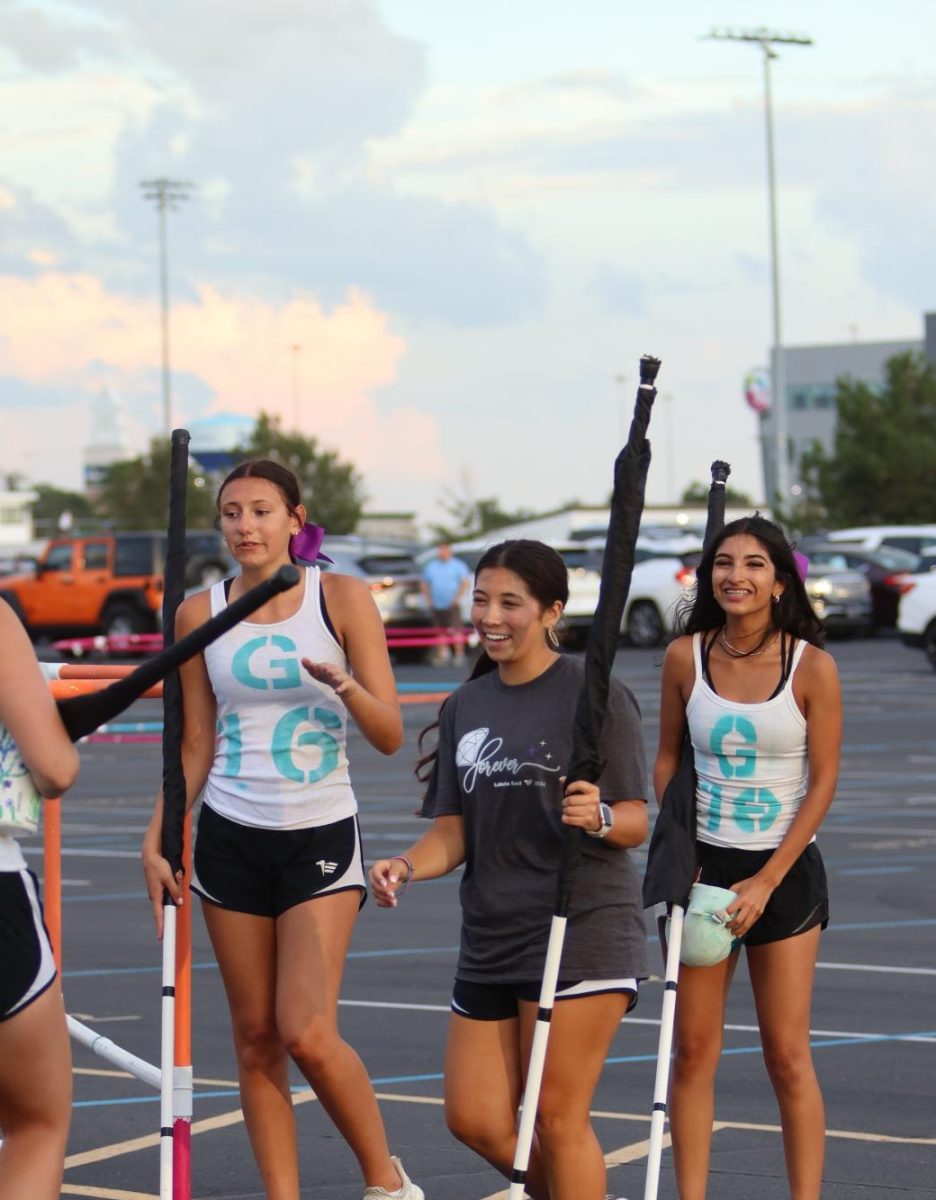STORY ZACH SHULTZ
INFOGRAPHIC MARY BARONE
PHOTOGRAPHY RILEY HIGGINS
The first time I walked into Lucas Oil Stadium to perform was the afternoon of Oct. 25, 2019. I will never forget the feeling of performing on that field for the first time. Lucas Oil Stadium is a very important and well-respected venue in the marching band community, with it being the home of both the Drum Corps International (DCI) World Championships and the Bands of America (BOA) Grand Nationals Championships. Being able to perform here is the crowning achievement of any marching band, and thousands of musicians and performers had once performed here, showing all of their hard work to massive audiences. On that day, I got to join that large number of people when the Lakota East Marching Thunderhawks performed our 2019 show, “To the Heavens,” at the BOA Indianapolis Super Regional Championships.
In 2019, East was up against 83 other high school marching bands from various Midwest states. We ended up placing 18th, just barely missing the fourteen bands that made finals. The band received an overall score of 80.675.
Two years, two weeks and four days later, on Nov. 11, 2021, I walked onto the same field for the second time, along with the rest of the band to perform our 2021 program: “Horoscope.” The only real difference from 2019 was that I was older, and the competition was tougher. With it being the Grand Nationals Championships, we were facing 98 other high school marching bands from 18 states across the country. Some of these bands were previous Grand Nationals winners such as Avon High School and Carmel High School from Indiana, as well as Broken Arrow High School, Oklahoma.
Despite the difference in competition, the feeling of performing on that field was no different. There’s just something about it that fills you with pride just from being there. After the show, you can hardly remember what it was like. The entire adrenaline rush from performing clouds your mind. Knowing that you just poured all of your hard work and dedication, all the hours you had spent into a year’s season –daily practices, nightly sectionals, marching in the parking lot for five months. All of that blood, sweat, and tears, delivered into a ten minute show in front of hundreds of people. It’s an indescribable feeling of pride.
For a lot of high school bands, the whole marching season leads up to this moment, this performance, this huge show. As a member of the Lakota East drumline, my journey started this past February, practicing rudimental fingering exercises and early parts of the show music until we joined the rest of the band in July for band camp. During band camp the band worked out in the blacktop parking lot under the sun for at least eight hours a day, putting everything we had into learning our music and positions on the field during the show. The days are hot, extensive, painful, and tiresome, but I knew that later in the season, it will be worth it.
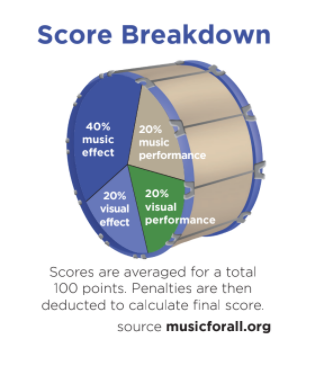
The Thunderhawks had our first performances of the show at East football games when we played during halftime for any students and families interested enough to watch. These early performances were great ways to see how our progress was developing, and it helped us to improve aspects of the show. However, the season really picks up when we start attending competitions.
East takes part in both BOA and Ohio Music Education Association (OMEA) competitions. That means transporting nearly 200 people, their instruments and flags, and all the show props via buses and semi trucks. Band parents drive the trucks, haul the equipment, and generally carry the bands. Throughout September and October, the band went to various OMEA shows at Wilmington, Ohio State, and Turpin– in addition to a weekend trip to Toledo where we performed at the BOA Northwest Ohio Regional Championship at the University of Toledo. There, the band placed second overall with a score of 77, beating sixteen other bands and losing only to Brownsburg High School, Indiana. We also attended the OMEA State Finals in Dayton, where we received a one out of five rating, also known as a “Superior” rating, for the 24th consecutive year.
During the 2020 season, the Marching Thunderhawks were absent from competition due to COVID-19 restrictions. Returning to the competition season after a year was a little rocky at first, but students in the junior and senior classes who were vets of competition travel easily got into the feel of things again, and the underclassmen who had never been before did amazing for their first time. After each event, the band received feedback that allowed us to improve and become a better ensemble. Once we had learned the entirety of the show, the rehearsals in the last few weeks leading up to Grand Nationals were focusing around fixing miniscule things. These included taking musical parts out to see how it sounded, adding choreography, making small changes to positions, just anything we could do to make our show better.
Finally, we made it to Grand Nationals. After a week of rehearsing as hard as I could, everybody woke up around 5 a.m. on Thursday the 11th to take the charter bus to Indianapolis where we first rehearsed inside of the Indianapolis Convention Center. I checked in at my hotel, enjoyed some free time, and got dressed in uniform before taking off for Lucas Oil Stadium. Arriving at Lucas Oil is nothing short of intimidating because of how large the building is at first glance, as well as seeing all the buses and trucks belonging to other bands parked in front. The band unloaded our East-owned Atlas Van Lines moving truck which transported all of our instruments during the trip, and headed inside.
The drumline broke off from the majority of the band for our own private warm-up in an empty meeting room, where we practiced our normal exercises and sections of the show. Our small team of percussion directors, John Espy, Bill Pendleton, and Scott Brown, gave us a few small pep talks, which we always get before shows. However, these speeches were different just because of the circumstances of Grand Nationals. To add on to any stress or anxiety I was feeling, the block the band had been scheduled for was filled with some of the most famous and critically acclaimed bands attending, such as Avon and Carmel, which meant that our audience would naturally be bigger than usual.
The drumline joined the rest of the band in the tunnels leading out onto the field, waiting for the Fishers High School band from Fishers, Indiana to finish performing. As I walked onto the field, I felt something that alto saxophone section leader and leadership team president Alex Reffner described as “incredible and unreplicable”, and I couldn’t agree more.
I have lost track of the number of times we have played through and performed “Horoscope”, and in the end, the performance that night was just another runthrough, not much different than the one at the end of practice that morning or the last competition. Something I think everyone in the band can agree on is that it was a great show, and we all played and marched just like we always do. After we performed, we left the field, exited the stadium, and left Lucas Oil for the night. Some relief had been lifted off of my shoulders now that the performance was over, but now the wait for awards, taking place the next day, began.
As the band sat high up in the Lucas Oil stands, awards began. Drum majors representing all 99 bands attending marched onto the field, receiving participation awards. We cheered when our five drum majors (East students Jack Nomina, Lina Miesse, Hailey Bowden, Maria Hudepohl, and Emma Laude) reached the podium and accepted ours. Then everyone sat and listened as they announced the 34 semi-finalists. It was a very tense moment as they called off the bands who had performed well enough to move on.
At the beginning, none of us were that worried, but as the numbers went on, we all got less hopeful and more quiet, as everybody intensely listened, not daring to make a sound that might obscure the announcer’s voice. When they reached 34th, it confirmed the thought we were all thinking but didn’t want to be true: Lakota East didn’t make it. It was a very emotional moment for everyone in the band, as we all felt confident with the show we had put on the day before. But regardless, it still stung at least a little bit.
We ended up placing 36th, just two spots off of semis. Our final score was 81.700. We were all a little upset that night, but I was still proud of everyone and how far we had come this year as a band.
“I am very proud of our show [this year],” Nomina, who is also an Oboe soloist in the show, told Spark. “I think that no matter how we do [in competitions], we have a show that’s good enough to be proud of.”
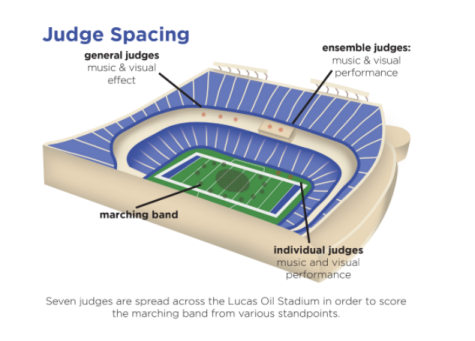 Nomina isn’t the only one to feel this way. Many other members of the band expressed their satisfaction with how this season went, including Miesse.
Nomina isn’t the only one to feel this way. Many other members of the band expressed their satisfaction with how this season went, including Miesse.
“I think that the band has made a ton of progress, especially considering where we were at last year,” Miesse says. “With all the uncertainty, I don’t think we all really had any expectations, but everyone has been doing amazingly and they all have just grown so much.”
Now that the season has ended, all of the members of the band, including myself, prepare for some time off until next spring. The directors of the East Bands program, Robert Tanis and Kevin Engel, however, are reflecting on the season and have already started planning for next year.
“Thinking back to what we sounded like in May, I was like, wow, we have a long way to go,” Tanis told Spark. “Now watching us perform in Indy, I was completely mesmerized by the growth of this ensemble from what it had sounded like back then, and what we were able to create together is truly remarkable. In many respects, probably the most growth in any season of any group that I’ve ever worked with, and [on top of that], everybody had a good time doing it.”
I, along with many other band members, are very satisfied with how this season went, even though we didn’t get exactly what we wanted at Grand Nationals. Close friendships and bonds were still made, together with tons of memories everybody will remember forever. I can say for sure that a lot of us are really looking forward to next year’s season, especially us in the junior class who will be seniors.
A lot of work goes into a season, but when I look at all of the fun times I had, I know that it was all worth it, and that is what is important in my eyes.


